#But that is because the union of crowns and the treaty of union were!! Further apart than I remembered
Text

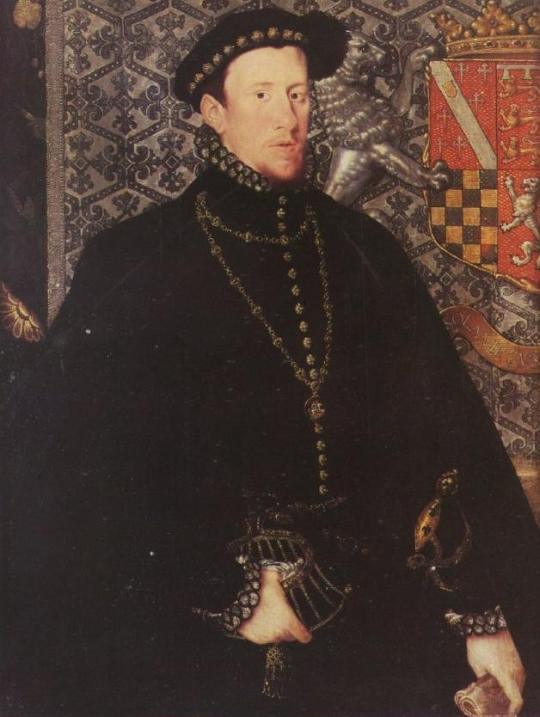
February 27th 1560 saw the Second Treaty of Berwick between England and Scotland.
This Treaty of Berwick was a 'league of amity' or peace agreement made on 6th July but the negotiations were held in February, and the date popped up today, so here it is......
Queen Elizabeth was keen on the Berwick treaty was because she feared that France intended to rule Scotland, which would have threatened her realm. The two had signed an accord that stipulated that the crowns of Scotland and France would be unified if there were children of the marriage,of Mary Stuart and François, then the King to be, and the crown of Scotland would be given to France if there were not. , Elizabeth feared such greater unity between Scotland and France, and in particular, Mary Stuart’s claim to her throne.
Another factor concerning Elizabeth was the desire to further hasten the Reformation in Scotland, which is why the Protestant Scottish Lords of the Congregation (sounds like a great name for a rock group) were trying to get the Catholic French expelled. For Elizabeth, if Scotland were Protestant, that would make it an ally and help protect England.
The result of the discussions was that an English fleet and an army came to Scotland to help expel the ten thousand French troops that were defending the Regency of the Catholic Marie of Guise. Armed conflict ensued and the French troops retreated. They fortified the port and town of Leith against the combined force of English and rebel Scots and so began the Siege of Leith, on the 17th of March, 1560.
The English Lieutenant General Norfolk was the man sent north by Elizabeth Ito support the Lords, whilst his compatriot, Admiral Winter, was in charge of the blockade and besieging of the Forth at Leith, occupied by the allies – the Scottish and French naval forces. For safety then, Marie of Guise had flitted to Edinburgh Castle, which event took place on the 1st of April.
Interestingly, an old Scottish prophecy had foretold great changes “when two winters were to be seen in Scotland in the same year.” And so it happened that whilst Admiral Winter was told to pick any quarrel he could with the French and prevent reinforcements or the Scots, eponymous winter storms coincidentally wrecked a second French convoy on its way to Leith. Thus two winters did indeed prove to have been a decisive factor in the expulsion of the French from Scotland. Spooky, or what?
Eventually, the Gordon Earl of Huntly, a Catholic, came to terms with the Congregation and by then, hardly a Scot of note remained on the French side, except Bothwell and the Bishops. Following this shift, on 27thFebruary, 1560, the Treaty was concluded between Norfolk and the Scottish Lords – both Protestant and Catholic.
The Treaty was “for the defence of the ancient rights and liberty of their country”, as the original words “for the maintenance of Christian religion” were left out of the final version. The Lords bound themselves to resist any closer of a union between Scotland and France than existed through Mary’s marriage and to assist England against France with all their forces if France invaded England north of York. In addition, they were to assist with 2000 foot and 1000 horse if France invaded elsewhere.
On the 11th of June, 1560, Mary of Guise died of dropsy and figurehead of the Scottish Catholic resistance was removed. Later in the year, Mary, Queen of Scots, was widowed and returned to Scotland – but that’s another story. Another treaty, Treaty of Edinburgh, was signed in July 1560, agreeing that French and English troops would withdraw from Scotland. Also included in that treaty was the agreement for Mary, Queen of Scots, and François, to give up Mary’s claim to the English crown and recognize Elizabeth I as rightful Queen of England. Mary though, never signed this.
Pics are of the Duke of Châtellerault and Thomas Howard, Duke of Norfolk, Scotland and England's representative at Berwick respectively
3 notes
·
View notes
Text












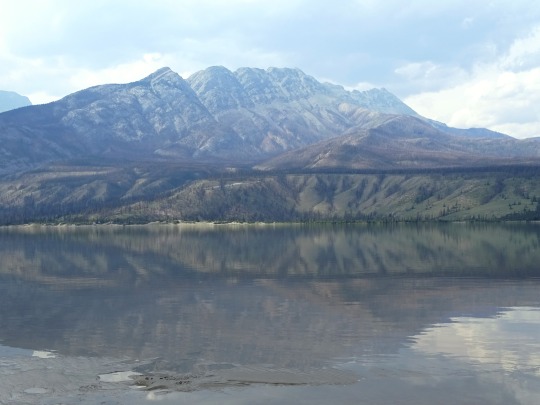



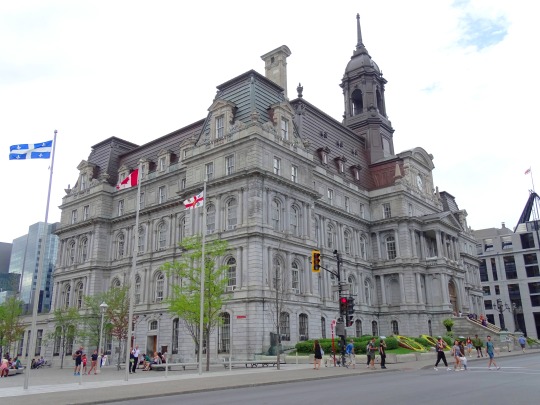
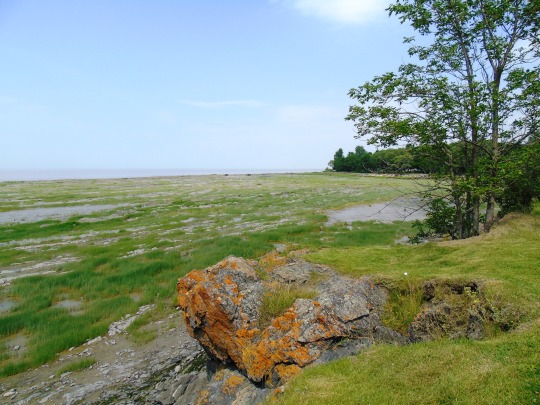

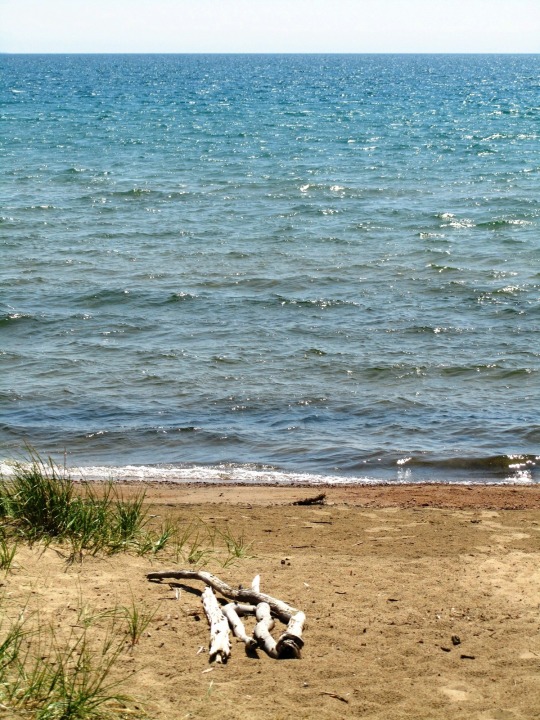


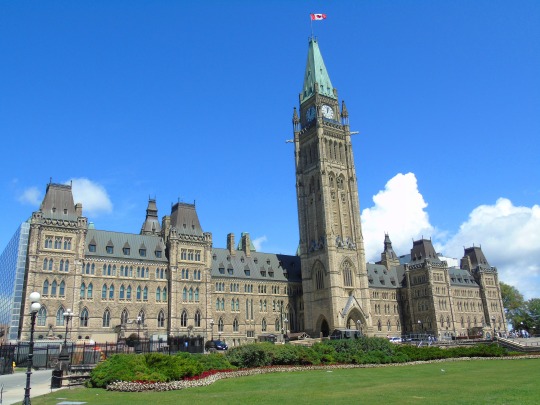

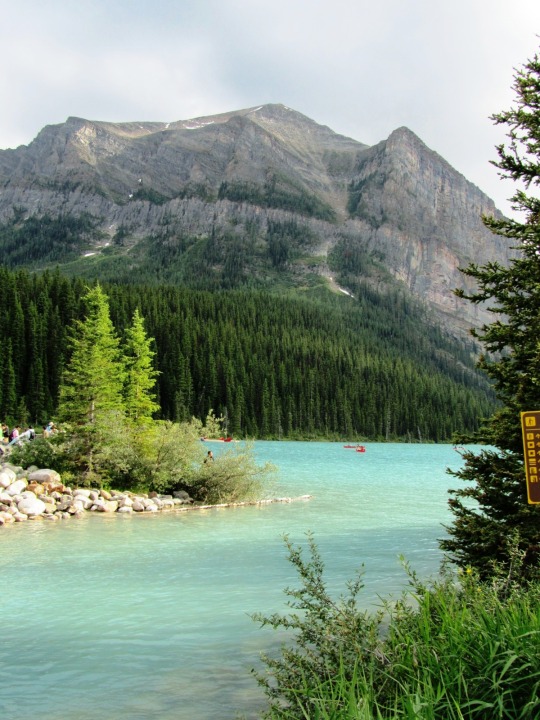





Statute of Westminster (11 December 1931) gave complete legislative independence to Canada, Australia, New Zealand, South Africa, Ireland (Free State), and Newfoundland (not then part of Canada).
Anniversary of the Statute of Westminster
The Anniversary of the Statute of Westminster is observed on December 11 every year. Although it is a holiday, Canadians still go to work, and it is pretty much an ordinary day for them. It is a nod to Canadian independence. The “Union Jack,” where logistics allow, is flown along with the Maple Leaf on federal buildings, airports, military bases from dawn to dusk to mark this day. It commemorates a British law that was passed on 11 December 1931. It was Canada’s final achievement of independence from Britain. The Statute of Westminster gave Canada and the other Commonwealth Dominions legal equality with Britain. These countries now had full legal freedom — except in areas which they chose. The Statute also defined the powers of Canada’s Parliament and those of the other Dominions. The day is mostly celebrated in Canada.
History of Anniversary of the Statute of Westminster
Before 1931, the British government had much influence over legislation passed by the Commonwealth Dominions (Canada, Australia, New Zealand, South Africa, the Irish Free State, and Newfoundland). Things began to change after the First World War — after the sacrifices of Canada and other Dominions on the battlefield stirred feelings of nationhood and desires for complete autonomy.
Canada began to assert its independence in foreign policy in the early 1920s. In 1922, Prime Minister William Lyon Mackenzie King denied help to British occupation forces in Turkey without first getting the approval of his Parliament. Later on, in 1923, Canada signed a fisheries’ treaty with the United States without seeking permission from Britain. In 1926, Canada established an embassy in Washington, DC, and Vincent Massey was named its first Canadian minister. This made him Canada’s first-ever diplomatic envoy posted to a foreign capital.
The Imperial Conference of 1926 was a more formal step. It gave legal backbone to the Balfour Report from earlier that year. The report had announced that Britain and its Dominions were constitutionally “equal in status.” The work of changing the Commonwealth’s complex legal system continued at the 1929 Conference on the Operation of Dominion Legislation. The Imperial Conference of 1930 further confirmed the need for the Dominions to have greater autonomy of their legislature. On 11 December 1931, the Statute of Westminster was passed by the British Parliament. This was done at the request and with the consent of the Dominions. This statute ratified the Dominions’ legislative independence. Although it had been granted the right to self-government in 1867, Canada did not enjoy full legal autonomy until the Statute was passed on December 11, 1931.
Anniversary of the Statute of Westminster timeline
15th and 16th Centuries Age of Discovery
Portugal and Spain pioneer European exploration of the globe, leading to the discovery of continents such as the Americas.
1757 Britain in India
Britain becomes the dominant power in the Indian subcontinent after defeating the Mughal in the Battle of Plassey.
1783 The American War of Independence
The war results in Britain losing some of its oldest and most populous colonies in North America.
1956 The Suez Crisis
The Suez Crisis confirms Britain's decline as a global power, because the Egyptian president nationalizes the Canal, owned by the Suez Canal Company, and formerly controlled by French and British interests.
Anniversary of the Statute of Westminster FAQs
Who is the current sovereign under the Statute of Westminster?
Today, the Statute of Westminster’s restrictive clause is still valid, so the current sovereign is Queen Elizabeth II. Her acting advisors are known as federal ministers of the Crown.
Which is more important: the Statute of Westminster or confederation?
The Statute of Westminster is arguably a more momentous occasion in Canada’s journey to sovereignty than to a confederation.
When did New Zealand adopt the Statute of Westminster?
The Parliament of New Zealand adopted the Statute of Westminster in November 1947.
How To Observe Anniversary of the Statute of Westminster
Explore from your armchair
Study your country’s history
Play a game such as balderdash
We have only given you brief information on the statute. Observe the anniversary by reading in detail about the statute — and things relating to it.
Britain had successfully colonized some of the biggest nations in the world. On this day, read about your country’s past — colonial or not — and try to understand how colonialism continues to affect the world today.
There are games that have categories including really strange laws from around the world, which would be fun with friends and family. While you are all laughing, remember that most laws had reasons, and have fun discussing that.
5 Facts About Canada That Will Blow Your Mind
Canadians eat the most donuts in the world
Bigfoot is legally protected in Canada
Smelling bad is illegal in Canada
The money is vision-impaired friendly
Canada has two national sports
There are only 30 million people in Canada, but over 1 billion donuts are eaten annually.
It is illegal to kill a Sasquatch in British Columbia.
Anyone smelling offensive in a public place could face two years in jail.
Canadian banknotes have braille writing on them for the blind.
Ice hockey and lacrosse are the national sports of Canada.
Why We Love the Anniversary of the Statute of Westminster
It’s a part of history
This day encourages us to explore our history
A day to learn and chat about laws
The Statute of Westminster played an important role in the history of Canada and other former dominions. The anniversary acknowledges this crucial day in history.
It’s easy to forget history when we are caught up in the hustle-bustle of our daily lives. The Anniversary of the Statute of Westminster encourages us to take a look at our history and find out more about our country’s past.
Celebrate the Anniversary of the Statute of Westminster as a day to learn about the rules, acts, and laws that are applicable in your country.
Source
#Yukon#Statute of Westminster#11 December 1931#anniversary#legislative independence#vacation#Canada#Newfoundland#Canadian history#Québec#travel#Quebec City#Ottawa#Montréal#Ontario#original photography#cityscape#landscape#Niagara Falls#Lake Ontario#Atlantic Ocean#Alberta#Lake Louise#Vancouver#British Columbia#Manitoba#Saskatchewan#New Brunswick#Nova Scotia#Pacific Ocean
3 notes
·
View notes
Text
Plea for Jean Baptiste Duroselle's Brilliant Book, Europe: A History of its Peoples
The famous French academician Jean Baptiste Duroselle was commissioned by the Commission of the European Union (European Communities at the time) and Jacques Delors personally to author a European History of Europe, which would justify the establishment of the European Union in the 2nd half of the 20th c. as the crown of all earlier efforts to establish one state across the continent. The book was written in French (L'Europe: histoire de ses peuples, Paris, Perrin, 1990, 708 p.) and it was geared to become (as it really did) the basic textbook of European History for the secondary education of all EU member states. For this reason, numerous translations were produced at the local level, and the book became in this manner the cornerstone of the European identity; as regards countries that were not member-states in 1990 but became later, the book was translated to the official language(s) of each country after its adhesion.
As one could anticipate, the chauvinist, racist, and bogus-European state of Greece made the exception.
Slavs taken for Greeks
Being produced by the colonial powers of France and England as a pseudo-state-tool for Western European schemes against the Ottoman Empire, 'Greece' became for the first time in World History the name of a state, following the treaties of Edirne / Adrianople in 1829 and the London Protocol in 1830. In the past, 'Greek' ('Hellene') was a most pejorative term for more than 1100 years of Christian Roman and Eastern Roman rule (330-1453), whereas 'Greece' was used as a merely geographical term for this marginal and otherwise useless province which was the final receptacle of the 6th c. CE cataclysmic Slavic influx that put an irrevocable end to the existence of the Greek-speaking people in South Balkans. Eastern Roman Emperor Constantine Porphyrogenitus wrote about this fact, but the pseudo-historians of today's racist Greek state get their salaries as fake professors in order to discredit this highly intellectual emperor!
Confession of the Ancient Greek Nothingness
Even before the Christianization of the Roman Empire, the famous Edict of Caracalla (Constitutio Antoniniana; 212 CE) made it clear that there were no 'Greeks' except as a linguistic particularity within the Roman Empire; by unconditionally accepting to become citizens of the Roman Empire, all the Greek speaking people in the Balkans (south of Macedonia), in Anatolia (Asia Minor), and elsewhere admitted that there was no Greek intellectual, ideological, imperial or political, socio-behavioral and state identity. Before the Roman invasion and the subsequent unification of all lands around the Mediterranean, 'Greece' was simply a geographical term denoting lands south of Macedonia and Illyria; but there was no ethnic, tribal, linguistic, intellectual, spiritual, religious -let alone governmental- unity. That is why they were killing one another like flies; and their low level historiographers, who never attained the due spiritual and imperial level initiation to become proper, impersonal and objective, imperial scribes, wrote their nonsense (like Thucydides) uselessly expanding on civil wars – which further proliferated hatred, rancor, strife, enmity and wars among those wretched populations.
Alexander's Capital was Babylon, not Pella, not Athens!
Only two foreign kings, Philip II of Macedon and his son and successor Alexander, invaded and imposed temporary order on those chaotic elements. But Alexander despised all things Greek, and that's why he chose Babylon as capital and the Sogdian princess Roxanne as wife, after he substituted himself to Darius III, thus becoming the Shah of the Iranian Empire.
Colonial flattery and imperial promises to South Balkan vagabonds
Now, the situation was even worse in the South Balkan confines in 1821-1828, because not even a droplet of Ancient Greek blood could be found in the veins of the local populations of Slavic, Albanian, Turkish, Vlachic, and other origin; they were speaking numerous different languages and the only means of communication among them was Ottoman Turkish. To those misfortunate populations the criminal colonial gangsters, after posturing as 'Philhellenes' and narrating cheap flimflam for idiots, sold the fallacy of a supposedly glorious past of which that wretched populace would be the hypothetical offspring.
Fake Modern Greek language to support Pseudo-Greek Racism
Believing the viciously constructed pseudo-myth of Hellenism, those populations were forced to learn a prefabricated (by the France-based Adamantios Korais) idiom (which was imposed in the schools in a dictatorial and genocidal manner) and were fooled for two consecutive centuries, being incessantly told paranoid lies about the so-called splendor of the fictional Ancient Greeks who 'had civilized the world'. This turned the execrably miserable and ethnically bastard pseudo-nation to exorbitantly arrogant braggarts whose lives depend on ceaselessly and hysterically deprecating all the other, neighboring or not, nations (notably the Macedonians, the Bulgarians, the Albanians, the Turks, and the Iranians) as culturally 'lower' people – whose ancestors were (hypothetically again) 'civilized' by the ancestors of today's Greeks!!!
Today's Greece is indeed the racist state par excellence.

Then, Jean Baptiste Duroselle came!
With his superb book, Duroselle quasi-automatically ridiculed all the clowns of the Greek bogus-universities (still today, it is prohibited to establish a private university in pseudo-democratic, crypto-totalitarian Greece) whereby ignorant historians, idiotic archaeologists, nonsensical political scientists, clownish Hellenists, and absolutely charlatanesque Byzantinologists (sic!) work (or perform if you like) - not to carry out true, genuine research but to subserviently support the criminal, racist dogma of Hellenism, which is the worst form of Nazism that has ever existed.

The chauvinist pseudo-Greek mob's anger against Duroselle
Then, in 1990, due to the EU demand for a Greek translation of Duroselle's book, all the mental sewerage of the uneducated, ignorant and decrepit Greek mob flooded the mass media spreading unprecedented insults against Duroselle, EU, Europe, European universities and … the rest of the world! The intellectually felonious, academically malodorous, and mentally pathetic professors of universities and academicians of Greece either kept silent or sided with the mob to become more popular as supposedly defending the 'rights' of the 'Greek' nation. This situation testifies to a well-concealed reality; the fake Greeks of the last two centuries, who are in reality a defaced populace deprived of their true Eastern Roman (not 'Byzantine') Orthodox identity, never felt as a 'European' nation. Their immense psychological complex of inferiority is therefore expressed every time a real event underscores that they are a second class, uneducated pseudo-country with no integrity, no discipline, no rule, no morals, and reason of existence.
The southeastern borders of Europe are those of Albania, Macedonia and Bulgaria.
I consider as my life's most outstanding achievement and most distinct honor that I defended Jean Baptiste Duroselle personally and his book and academic-intellectual approach against all those rascals (the mob and the Nazi elite and state of Greece), who found my 2800-word Plea for Jean Baptiste Duroselle's book as a good reason to insult me as well and to force me out.

The anti-Duroselle hysteria in Greece and the forthcoming end of Greece
The Plea was published in the Greek weekly Oikonomikos Tahydromos on the 7th February 1991, although it was written and sent on 30th August 1990. It generated more than 30 nonsensical, insulting and ridiculous responses from either biased academics (who wrote against me only to 'justify' the positions that they held without being properly qualified – which is the very common case in the meritless pseudo-state 'Greece') or uneducated mob that mistook the defense of the historical truth by me as personally insulting for them! Such is their depravity that they cannot realize that the only thing that they will finally achieve in this manner is the total nuclear annihilation of Greece.
About Jean-Baptiste Duroselle:
About the book:
Random samples of book reviews:
-----------------------------
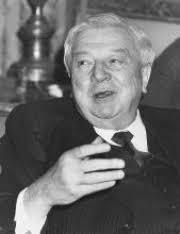
Download the article in Word doc.:
https://www.academia.edu/86600089/Plea_for_Jean_Baptiste_Duroselles_Brilliant_Book_Europe_A_History_of_its_Peoples
#Duroselle#Jean Baptiste Duroselle#Hellenism#Greece#Greek racism#Grecocentrism#Greek nationalism#History of Europe#European Union
0 notes
Text
Had a moment there watching this where I became utterly unmoored in time because I forgot the specifics of when different laws were enacted and had my brain a hundred years in the wrong direction
#Cs he said King George and I was like wait what. I thought we were just after the union.#I SWEAR we were just after the union surely that makes us James/Charles?#But that is because the union of crowns and the treaty of union were!! Further apart than I remembered#I am really utterly atrocious at remembering dates but I'm very good at remembering the order that events happen in haha#So. I had to check that one. All well now though
2 notes
·
View notes
Note
Any historical aus you can recommend?
There is a serious lack of these in the Steter fandom imo, especially ones that aren’t regency/royalty, but thankfully they do exist:
Steam Rises from the Body by twothumbsandnostakeincanon (somanyofthekids)
Peter and Stiles are surgeons in a Mobile Army Surgical Hospital near the front line of the Korean War.
Hooverville by twothumbsandnostakeincanon (somanyofthekids)
Town to town, train to train, tent to tent.
By 1932, the dust had begun to blow and the jobs were gone.
Anonymity was a byproduct of looking for work, which made it both necessary and convenient.
Stiles had enough secrets of his own to know to look the other way when he saw something that shouldn’t be possible.
The ghost of a tail giving enough balance to disembark a moving train.
Near silent Latin whispered on the edge of a tent encampment.
A flash of burning eyes.
He had more than enough to worry about without adding the oddities of others, and besides- having unusually sharp teeth certainly didn’t make a man worse than the ones running from the wife and kids they couldn’t feed.
So Stiles kept his observations to himself. He kept his everything to himself.
Until he met a man. One with eyes so blue they seemed to glow- and then they did.
Stiles tried to look away, but for the first time he was stopped.
“Don’t be like that sweetheart. Aren’t you curious?”
Orbital Distance by neglectedtuesday
Artemis, the capital city of the Moon, where movies are born and stars are made. The crown jewel of American cinema and simultaneously Hollywood’s biggest rival. The money may be dollars, it may be counted as the 51st state but the studios run this city, making cinema and waging war. No real bloodshed but equally cutthroat in its own way. Peter has devoured article after article about the industry, from in-depth journalism to gossip rags, desperate for every detail, every scandal, every glorious moon moment.
Wild Creatures by neglectedtuesday
The treaty is signed while Stiles is being laced into his wedding corset. Ink splatters parchment as a maid pulls the ribbons, tighter and tighter. Stiles’ breath and future are taken away, all to save a village. He is a sacrifice more than a bride. The maid assists in fixing a choker around Stiles throat. Her hands are cold despite the roaring fire in the grate. The choker is a string of blood red rubies, they reflect the firelight with a wet shine like an open wound.
Out Of The East, Never See The Sun Rise by neglectedtuesday
In the beginning, there are three absolutes.
One. Stiles is a god, forged of starlight and collapsing galaxies and he is eternal.
Two. Peter is human, fragile bone and viscous blood and he is temporary.
Three. Stiles and Peter are in love; love that claws its way inside one’s heart like fish hooks; all encompassing love that is beautiful but dangerous.
Stiles is a god. Peter is human. They love each other.
Three absolutes.
Viking Wolves do it Better by MaroonDragon
Stiles is the omega witch in the village he was born in. A gift that had been passed to him from his mother. A curse that left him an outcast amongst the people he helped heal. Until one day he no longer is. Kidnapped by the Viking Wolves of the North, he suddenly finds himself a human amongst wolves. There is one wolf in particular who is intent to woo him into staying. Stiles is really only indulging Peter until he can make his escape. There is nothing remotely interesting about the other man. Not a single thing.
Utterly Appropriate by wynnebat
There’s only one person whom Stiles would marry, and whoever has asked for her hand isn’t on that list.
Duty by ChloeWeird
A petrified omega. An ambitious alpha. A wedding night four years in the making.
Bound Fast With Love by Diablerie
It started when his grandfather assigned him to attend to the visiting professor, Peter Hale.
“Be his shadow, my boy. Take care of his smallest need before he has an opportunity to notice. It would be quite the feather in our cap if we can steal him away.”
Somehow, that brought him here: bound to a table and about to be spanked for his shoddy recitation of ancient poetry.
Bittersweet Creek by Guede
When Stiles finally steps off the westward trail to California, he’s the last of his pack. He starts building a den, but then he finds a dying man next to a burnt-down house and it turns out he’s not really much of a settler, after all.
Wolf Ranch by Guede (Poly - Stiles/Lydia/Peter/Derek/Chris)
At first glance, Beacon Hills seems like a terrible place to settle. Ruled by alpha werewolves and surrounded by a haunted forest filled with outlaws, it’s not very friendly to Eastern greenhorns. So Stiles and Lydia should fit right in.
Intemperance by Guede (Poly - Stiles/Peter/Derek/Chris/Laura)
Stiles is the one who gets pulled back to Beacon Hills by a murder.
Moonshine by Udunie
Deucalion was sitting in the corner that was reserved for special guests, with his henchmen - a pair of twins - guarding the table. He was just putting his stetson down, eyes catching Peter and widening just a fraction when he noticed Stiles. He was a good guy though, and quickly got his pokerface back in place. Nobody came to the Moonshine and insulted Peter.
“Deucalion, nice to see you,” he greeted, not acknowledging the goons who were giving Stiles the side eye. He knew they probably wanted a piece of his kitten, but thankfully were not foolish enough to try.
May the Mighty Fall by Udunie
“Oh, how the mighty have fallen,” Matt sneered, looking at Stiles with derision. “One day, the popular, orphaned son of a beloved consul, and the next a traitor to the Emperor and an enemy of Cantalupo…”
Stiles didn’t move a muscle, even though all he wanted was to leash out, to reach between the bars of his cell and strangle that little, creepy shit. He could have said a lot of things, he could have told Matt’s pompous, patrician ass that he was - in fact - not an orphan. And seriously, from where he was standing, he wasn’t even really a traitor.
Well, yes, he wanted the death of the Emperor, but he wanted the best for Cantalupo - the return of the Lupa Maxima, the city’s rightful ruler and with her, the revival of the principate.
Of course, his reasons were far from being completely patriotic.
Gerard Argent tried to have his father killed, he lived in outrageous luxury while some of his subjects starved. He didn’t give a shit about the plebs…But. Stiles couldn’t say any of that. It wasn’t the time. Not yet.
A Matter of Chance by 1001cranes (WIP)
“I’m going to offer for the Stilinski boy,” Peter announces at breakfast one morning.
Greenberg drops the entire pot of hot chocolate.
A welcome arrow by 1001cranes
The wedding is small and grim, because Stiles is being carted off to parts unknown, married to a thirty-something year old dude who wants to marry a seventeen year old dude - totally not creepy at all.
my very soul demands you by veterization
Orphan Stiles Stilinski seeks work at Hale House, an enormous, foreboding mansion in Beacon Hills run by Mr. Peter Hale, who employs him as a butler. Or: Stiles is Jane Eyre, and Peter is Mr. Rochester.
Royal A/B/O Au by charlottecjhlvr
When his father’s Kingdom and the Hale Kingdom make a treaty, Stiles is the one who has to make it work.
In Sheep’s Clothing by Twisted_Mind
“The problem is Derek,” he began.
At this, Cora merely snorted in a particularly unladylike fashion. “When isn’t it?”
Alas, it was not so simple a matter as the scrapes of the child he had once been—would that it were! “Unfortunately, in this case, Derek has engineered hardship for not only our family, but the young Miss Stilinski also.”
At the sound of the young gentlewoman’s name, Cora’s features sharpened; she leaned forward and rested one hand tenderly on Peter’s knee as she asked, “Speak plainly—what’s he done, and what must now be done to rectify the situation?”
Peter took her hand in appreciation and followed her example, without any further prevarication. “He bedded his intended, and if he had merely done so, we’d have precious little trouble on our hands, for he’s hardly the first to take his wife-to-be to bed before their union was formalized, however much you will hear other preach otherwise.”
Cora interrupted, then, as she gripped her uncle’s hand tightly. “I’m not going to enjoy what I hear next, am I?”
Temporary Claim by sunrise_and_death
Some, of course, are off limits. Queen Talia and her husband have their special favorites who join their marriage bed from time to time. Laura has several young strapping men that are hers and hers alone. Even Derek has a few favorites—the quiet ones, the sweet ones.
Peter? The Duke only has one.
Sacrificial Lamb by Bunnywest
The Alpha has a scruffy beard, unkempt hair and dazzling blue eyes. The scar on his face is raised, running down his cheek like a twisting, gnarled rope. Stiles knows that it came from the blade of Kate Argent herself, and that the Alpha got it fighting in the battle where Kate killed his lover, cutting his head clean from his neck, if the stories are to be believed.
The Alpha lets Stiles look his fill, before indicating that Stiles should take the other couch, and Stiles does so, his father’s words echoing in his ears. He can do this, can be pleasant and amenable. The lives of his people may depend on it. The Alpha spends long moments surveying him, before saying, “I like you, Stiles.”
You don’t know me, Stiles wants to blurt out, but he bites his tongue.
Goddess Below by Unloyal_Olio
Peter sneaks into the vestal temple looking for a virgin. He finds Stiles.
73 notes
·
View notes
Text
maybe, just maybe, fated to be
A continuation of this Jinyi AU for @this-solaris-life, because I’m soft for them and I wanted pancake snow leopards.
Translation key: Shé - serpent shifter. Bào - snow leopard shifter. Lù - deer shifter.
---
For all he was a Crown Prince and not exactly in charge of anything, he was forced into enough meetings by his father and grandfather’s side to make his eyes cross. A pretty showpiece he felt like most days, there to be decorative, no matter what ma-ma said about his voice being important.
It’d been Jin Ling’s marriage to Lan Jingyi that had ended the war, yet as the talks went on, every comment or question about his union was aimed at Jin Guangshan to answer, or ba-ba, who always looked like he had a headache just having to speak. Jin Ling nearly cried when Zizhen slipped through the back curtain and made a show of whispering something of vital importance into his ear. It was important, in Jin Ling’s eyes, since it had everything to do with his husband and nothing to do with this meeting, and given Zizhen was serving as adviser, it was an out no one could argue.
Even ba-ba looked relieved when Jin Ling managed his escape, sweeping after Zizhen in his best, full authoritarian demeanor. The nobles hanging outside the meeting hall scattered at his determined face and hurried walk, and for all they cared he was marching to his war room, the way he had so often before the treaty. It felt like a different life now.
“What do you mean, he’s overheating?” he demanded of Zizhen the moment they were in the back hallway, far from prying eyes and ears. “Has he seen a healer?”
Zizhen looked ready to laugh and his own demeanor shifted, from war councilor to amused friend in a single beat. “A-Ling, think about it,” he said, and there was definitely a giggle starting up. “He’s a snow leopard. Do you think Gusu gets this hot?”
Jin Ling winced, because no, he knew from his jiu-jiu’s excursions into the Cloud Recesses that it was far colder and snowy, which fit the Bào well. It made the snake inside him shudder, as all serpents did to consider the cold.
Knowing he’d overlooked the reverse was an unexpected sting to his heart. One that made even his pride wilt.
“Shit,” he said, rubbing his forehead. “Where is he now, do you know?”
“The lower kitchen,” Zizhen said, already leading the way. “Sizhui helped him into it, since it’s been closed since last autumn. It’s probably the coolest area in this whole palace.”
It was, which was why his grandfather had ordered it closed and newer, much more open aired kitchens built where the sun was always shining through the windows. Too many times the kitchen staff - the majority of which were serpents or other types of reptile shifters - had been unable to finish meals, or continue working due to the chill. Jin Ling’s kind did not fare well in cold places, after all, and the idea that Jingyi now had broken into the damp, dusty place just for some relief was equal parts amusing and shudder-worthy.
Not that that would stop him from going down there, but still. There had to be a better solution.
“Zizhen, have a bath drawn in my rooms,” Jin Ling said once the kitchen door was in view. “A very cold bath, if you can. Ask Mistress Mao if she can spare some ice.”
The knowing smile that split his friend’s face had his own cheeks heating. He swatted at the Lù to get him going and stepped around him so he wouldn’t have to see Zizhen’s glee. Thankfully, Zizhen took the hint and moved off, laughing, because he was a terrible person, and Jin Ling had to take a moment to compose himself before shoving open the door.
The chill was just as bad as he’d feared and he instantly recoiled. Swallowing down a hiss, he stepped further in, ever stubborn, and looked around for any sign of gold and white robes.
“Jingyi?”
There was a soft chuff, which drew his eyes to the corner. A blob of shadowy gray was laying against the floor, and as his eyes adjusted, he took in the sight of his husband in full snow leopard form, limbs akimbo and body as flat to the stone tiles as possible. He looked ridiculous, like he was trying to hug the earth between his massive paws. It was also terribly cute the way Jingyi looked up at him with too big, rather pathetic silver-blue eyes.
Please tell me it doesn’t get hotter, his husband begged in a low, growly tone. How do you breathe in this heat? Gods… am I melting? I think my spots are melting off…
Jin Ling couldn’t fight the smile, hearing that, and knelt before him, already starting to shiver in the damp. “Your spots are all where they should be,” he promised, doing his best not to worry. Funny as it was, Jingyi was panting for real, and even this cold that had Jin Ling wanting to run didn’t seem adequate to cool him down. “And no, this heat isn’t our standard. Not to say it’ll cool down a lot, but it’s not typically this hot either.”
A groan followed that, those massive paws flexing over the floor. Sun-lover, he accused, but there was no bite to it, only resignation. How am I supposed to be your consort when I can’t even stand up straight in this weather?
“We’ll figure it out.” They had to, for Jingyi’s sake. There was no other option. “For now though, I have a remedy.”
Two big eyes looked up at him, pitifully hopeful. Oh?
“It requires you getting up,” Jin Ling said, shuddering now. “And me not freezing. Shall we?”
He held out his hand and after a long moment and deep sigh, Jingyi pushed his face into his palm before standing.
You could have just sent Zizhen in here to get me, he huffed, sticking close to his side as they walked, as though escorting him from the kitchen back to their rooms, even though he had no idea that was the destination.
“I warm up fast,” Jin Ling shrugged, unconcerned, and kept a hand on Jingyi’s scruff to gently lead him. When Jingyi seemed to realize where they were headed, he perked up, though his panting had only gotten quicker. Jin Ling swallowed around the stab of guilt he felt just hearing it and quickly pushed open their door.
The ordered bath was there as promised, with bits of ice floating on the surface. In an instant, Jingyi was gone from his side and folding over the side of the tub, careful not to slosh the water. Headfirst, he disappeared into the bath, then resurfaced with a happy purr, eyes squinted in pleasure.
You are officially my favorite husband, he said, blissful, and bobbed under the water again.
Snorting, Jin Ling pulled over his vanity seat and sat before him, smoothing back his wet fur when he resurfaced. “I’m your only husband,” he scoffed, glad he could fall back on a tease to soothe the sense of wrong he still felt in his heart. What a poor husband he was, that he hadn’t even considered what a permanent change in climate would do to Jingyi.
Even better, Jingyi said before disappearing into a pile of bubbles. When he came back up, he was human, sopping wet and utterly graceless as he shrugged off his robes and flung them away.
And that was… way too much skin. Jin Ling quickly turned away, blushing. “What are you doing?”
“What does it look like I’m doing?” Jingyi demanded as the last of his clothes slapped down. With a sigh of relief, he sunk down to his chin, grinning ear to ear, and Jin Ling had married a devil, it was plain. “What are you doing, sitting there all red faced? Didn’t you have a meeting?”
He had. And he’d left it to be with Jingyi, to take care of him. How embarrassing.
“Zizhen told me you were overheating. That was more important than listening to Grandfather go on and on about my importance while not letting me say a word.” He hadn’t meant to sound bitter, but there it was, and some of his embarrassment fled under that growing sense of frustration that had only grown from the moment Jin Guangshan had used Jin Ling’s marriage as another tool of power.
Something shifted in his top knot, startling him enough to look over. Jingyi had pulled free his hairpin, it seemed, and the cascade of wild, wavy hair had his face heating all over again, especially when he realized Jingyi was currently putting the pin in Jin Ling’s own hair.
“Anything is more important than that,” Jingyi agreed before leaning back and if the sight of freckled shoulders had been bad, the flash of bared neck was definitely worse. Jin Ling tore his eyes away and did his best not to leap off his seat and run.
He settled for gently touching the hairpin, the first marriage gift he’d given to Jingyi upon their union. He’d never seen his husband a day without it since, and it’d always coiled a warm pleasure in his chest to think Jingyi appreciated its simple design. Perhaps even treasured it.
He’d made it in the design Gusu men typically favored, but in the gold and rubies of his own people. It always looked striking in Jingyi’s hair, glinting in the sun. He hoped fervently that it was not just duty that made Jingyi wear it, that its mix of their cultures was more than just a pretty embellishment, but rather a promise of meshing and molding to one another that he himself wished for. He could only hope it was the same for Jingyi.
Jingyi, who looked very pleased and wild sitting in the tub in only his freckled skin, surrounded by melting ice cubes and inky hair plastered on his neck and shoulders, fanning out over the water. It was not the first time Jin Ling had been made too-entirely aware of how handsome Jingyi actually was underneath those impish grins, but it was the first time it’d happened without a stitch of clothing to preserve any sense of shame and Jin Ling had a feeling he was about to become very familiar with the detailed filigree of his desk the longer this all went on.
“I thought the Shé were free with what they felt?” Jingyi asked him, and suddenly cold, wet fingers were tilting his face back, sliding over his jaw and stealing his breath completely, even before he was forced to meet his husband’s teasing smile. “Am I too shameful for you like this, husband? Or do you just like glaring at your desk?”
Jin Ling swallowed and forced a scowl to his face, the way jiu-jiu had taught him. “I thought the Bào weren’t so shameless,” he gave right back, wishing his face wasn’t so hot.
Jingyi looked down at himself, then shrugged. “We are communal bathers,” he pointed out, which Jin Ling realized a beat too late that he’d actually known. “And we see nothing wrong with being free in the presence of our fated ones.”
Fated one. Strange how such a concept could cut through him so easily, steal his breath and leave him speechless, all in one breath. “That implies you see me as your fated one,” he murmured, not allowing himself to hope. Because there was no way he could be, not when Jingyi had been as forced into this marriage as he had been. Fated ones were for true love, and choice, not… this.
Right?
“I do?” Jingyi’s brow furrowed in thought. “At least, it makes sense that you could be. Fate means destined, right? Well, I would argue that I was always destined to be here. With you. Fated.”
Jin Ling swallowed around that and looked away best he could with a hand still cupping his face. It had more of a nuzzling effect than he’d intended, which had Jingyi smiling again, far too sweetly, that he had to hide.
He closed his eyes, stubborn against the swell of confusing feelings making his heart skip. “Fated to be yours, then? How poetic.”
“Fated to be mine,” Jingyi agreed and there was a soft slosh of water before cold lips pressed to his cheek. “And we both know how terrible I am at sharing, apparently.”
Jin Ling laughed, unable to help it, and turned towards the soft breath against his chin he could feel. “Fated to be yours,” he repeated, shivering and wanting and confused, even if this felt right. Utterly right. “I guess that’s not so bad.”
His face was framed by two cold hands then, making him tremble and his eyes open. It was a costly move, with how soft and glowing his husband looked, even if the chill of his skin was doing nothing for his composure. He was lost, completely, the moment Jingyi leaned in and pressed his lips to Jin Ling’s, a soft, confident smile against his mouth.
“Not bad,” Jingyi agreed, voice a near purr, eyes gleaming silver in the light. “Not bad at all.”
36 notes
·
View notes
Text
walaw17 asked: Any thoughts on Scottish independence?
I have tried avoiding answers about Scottish independence and by proxy Brexit because like everyone else I am just bored into numbness by the whole on-going soap opera saga. There’s no escaping it. Even within families the conversation around the dinner table is about the next referendum and by proxy, Brexit.
I have Scottish roots on my father’s side and so when I meet my Scottish cousins up in Scotland for weddings, funerals and the like the topic does come up. This summer I was up in the Angus glens for the annual ‘Glorious 12th’ - the start of the shooting season - to join a family shooting party to shoot grouse and share a feast afterwards.
Most of the clan and family friends gathered would be High Tory. Thus they are very much in favour of the Union as they are strong monarchists to boot - even if they have fought for and against the crown at different times in their gilded past. They remain fierce Scottish patriots to the extent that they (good naturedly!) admonish me for taking my Scottish ancestry for granted and being ‘Anglicised’ on my father’s side.
I believe the Scots are for the largely loyal to the Union and they proved that at the last referendum on Scottish independence. But Brexit is now added into the mix and its has clouded the picture somewhat for many Scots. It’s easy to see why.
If I take the Scottish part of my family and their clan. As loyal as they are to the Union there were grumblings about how Scotland seems to be pushed to the margins as Little Englanders run around and use the cover of nationalist fervour to concentrate wealth and power in the City of London to become a free market Singapore 2.0. Even worse leave the United Kingdom vulnerable to the whimsical mercies of Donald Trump if we ever did a trade deal.
Where the Scots differ from the English is that they are natural Euro-philes. Scotland has always been close to France - even shared past Queens. The Scots are naturally outward looking people who in their proud history have always been travelers to the world - to seek work, or settle in new lands, or to trade. Look at the the British Empire, the Scots virtualy ran the empire and even populated it as far as India and North America. So one can’t ignore the impulse of the Scots to not turn its back on Europe.

The first minister of Scotland, Nicola Sturgeon, now proposes a second Scottish referendum. While politically justifiable even if it’s opportunistic, this is not the best way forward.
Less than three years removed from the first referendum, in which Scotland voted to remain in the UK by 55%, the question of national sovereignty returns to the political forefront. While 52% of the UK opted to leave the EU, 62% of Scots voted to remain Citing the manifesto of her Scottish National Party (SNP), which holds the majority in the Scottish Parliament, Ms. Sturgeon stated that Brexit constitutes a significant and material change from the 2014 vote and a new referendum is necessary. In this, the first minister is right to call for a referendum, as circumstances have unquestionably changed. Forced to leave a union most Scots prefer, the nation should have the right to reevaluate the partnership with their southern neighbours.
Scotland is better off remaining part of the UK than leaving it. The SNP, a separatist group at heart, is misleading its countrymen by saying otherwise. The timetable set by Ms. Sturgeon places undue pressure to resolve Brexit during an already tight window of two years. With Greenland taking roughly seven years to finalise its departure from the European Economic Community, it is hard to believe the UK, a political and economic behemoth in the region, departing in a mere couple. The timetable also provides Scots with little ability to make an informed decision. Much uncertainty exists regarding Brexit and its future ramifications for the UK after Oct 31st. These are not empty words, as Scots increasingly believe that there should not be another referendum in the next few years.
Even for a leader with high approval ratings like Ms. Sturgeon, referendums are risky. The first minister need not look further than her European counterparts, where referendums in the UK and Italy led to the self-inflicted downfalls of David Cameron and Matteo Renzi. Ms. Sturgeon would be wise to learn from the past, as referendums can have dire and unpredictable consequences on a political career. She should act more like the citizens she was elected to represent, who currently have little appetite for another vote. Even if one were held, the most recent polls shows only 37% of Scots supporting Scottish independence.
Arguing for departure from the UK may play well politically, but it would have disastrous ramifications for the small northern nation.

How did we get here?
Through the inattention of the leaders of the British government of the two major political parties is one obvious answer. Labour Prime Minister Tony Blair was eager to devolve power from London to representative assemblies in Scotland and Wales, despite the constitutional problems. Large majorities of Scottish and Welsh parliamentary constituencies elect Labour members of the House of Commons, and particularly in Scotland there was deep discontent with the policies of Conservative Prime Minister Margaret Thatcher. They associated them with the inevitable decline of Scotland’s heavy industries — steel, shipbuilding — and the high unemployment that resulted. Glasgow, once the proud “Second City of the Empire,” as you can readily imagine when you see its impressive century-old downtown office buildings, was particularly hard hit. Scotland, since the Act of Union of 1707, has provided a disproportionate share of Britain’s philosophers, statesmen (11 prime ministers including its most recent in Blair, Brown, and even Cameron), colonial administrators and military officers and men.
Now the Scottish economy is dominated by the public sector, and the Scots are suffused with self-pity over what they regard as the underfunding of the welfare state. Scotland’s second Parliament went into operation in 1999, with Labour party stalwart Donald Dewar as chief minister and with power over much of Scottish domestic policy, including the ability to raise taxes. Indeed under the 1707 Act of Union, Scotland retained Scottish law rather than the English common law, kept the Presbyterian established Church of Scotland rather than the episcopal established Church of England; and under later legislation ran its own education system.
But in 2007, as Labour’s popularity was declining in the UK generally, Labour lost its majority in the Scottish Parliament and the Scottish National Party’s Alex Salmond became chief minister. With a Scots Nats majority, Salmond pushed for the referendum and he got an apparently absent-minded Conservative Prime Minister David Cameron to agree to terms favourable to the separatists: the 16-year-old vote, the exclusion of Scots in the military or otherwise living outside Scotland, the fact that a “yes” vote favours separation rather than continuation of a relationship that has produced one of the world’s greatest nations for 307 years.
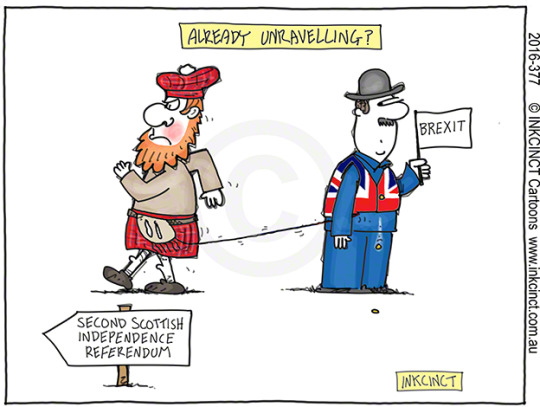
Scottish independence advocates argue that an independent Scotland will be able to tax itself to its heart’s content and will be able to draw on endless North Sea oil revenues to pay for whatever level of social services and community provision Scots want. But that’s unlikely. North Sea oil production is declining, and a pro-independence vote would be followed by negotiations between England (or rUK, rest of United Kingdom, as some dub it) over the division of oil resources — and division of the national debt.
UK authorities have made it plain that Scotland is not welcome to retain the UK pound, and that if it does (as Panama and Ecuador have the U.S. dollar as their currency), Scottish financial institutions won’t get a bailout if they get into trouble. So it seems likely that the two major Scottish banks and other financial institutions will move their headquarters and legal residence to London if Scotland votes for independence.
The EU’s doctrine of ‘subsidiarity’ seems superficially pro-devolution and the Treaty of Maastricht created the ‘European Committee of the Regions’ to promote regional identities against national capitals. But what is the reality? Neither Spain nor France will permit the precedent of secessionists joining the EU. During the 2014 Scottish Independence referendum, the European Commission said Scotland would not inherit the UK’s membership of the EU.
Brussels instinctively backed Madrid against Catalonia, prompting famous Breton musician Alan Stivell to lament “Catalonia’s political prisoners represents the suicide of the idea of Europe”. And the EU has a poor track record of looking after small states like Ireland. Brussels forced two ‘People’s Votes’ after Irish referendums went against the Nice and Lisbon treaties. The bail-out imposed on Irish taxpayers, politicisation of the Irish border and Corporation Tax harmonisation fuel rising Irish Euro-scepticism.

For all this politics are about passion and not reason, especially when you deal in mobilising (low information fed) populist sentiment.
This is why I fear that the economic arguments against Scottish independence, while strong on the merits, are less likely to be persuasive than an appeal to cosmopolitanism and history: the fact that Scotland, as part of the United Kingdom, has in many ways led the world over the last 307 years, intellectually in the Scottish Enlightenment of the eighteenth century (which helped inspire America’s Founding Fathers), economically in the industrial revolution, politically in the British Empire and then the British Commonwealth of Nations. Scotland looms larger in the world as part of the UK than it would as a separate nation.
The first minister of Scotland, Nicola Sturgeon, has the right and perhaps may even be right to hold a Scottish referendum in the near future, but she should not do so at the expense of her citizens’ prosperity. Once the ramifications of Brexit and voting to leave the UK are fully known, then Sturgeon could consider proposing another referendum.
But I hope the arguments against independence prove successful and that whenever Scotland has a second referendum the vast majority of Scots vote ’No’. And if or when that happens the Scots will cease to be transfixed by the idea of secession, as have voters in Canada’s Quebec. Casting aside a working relationship which has had such outstanding results for the (by no means assured) chance of a slightly higher-spending welfare state seems like a foolish idea.

I have argued with Scottish family and friends that Scottish independence would disturb our identities more profoundly, in ways that few yet grasp.
Our modern politics are Whiggish. Even the name “Whig” comes from the term “whiggamor” meaning a Scots cattle-driver. As someone who was raised High Tory values from an early age, I find that hard to concede but it’s painfully true certainly from the 17th and 18th Centuries onwards with the rise of parliamentary democracy. I suspect it’s even harder for Marxist inspired leftists to stomach given the socialist driven Labour Party have traditionally worked within Whiggish principles despite their fiery rhetoric being matched only by their incompetence to actually govern.
Whiggism favouring the theories and practices that evolved in the formation of the British constitution. But a lot of Whiggish ideas evolved out of High Toryism and so as a committed British royalist I have a strong attachment to the Anglican Church, and of course the British constitution is modelled upon and arose directly from Anglican theories of governance. But it is British, not English. Perhaps because her name begins with E, Elizabeth Saxe-Coburg and Gotha is sometimes thought of as an English monarch. But she is Elizabeth I of Scotland, of a German family introduced to rule in Britain not just in England. We have little, if any, reason to imagine that, absent the joining of crowns in 1603 or the Union of 1707, the constitution of England (or England and Wales) would have evolved remotely to resemble the British constitution as we have had it.
British Whiggism has not only slowly seeped into and eroded the ideological underpinnings of High Toryism (think of Thatcherism rather than Lord Salisbury) but it has also ben entrenching a Whiggish inspired constitution over the past 400 years or so. But if Scotland leaves, that constitution and its history are over. There is little reason at base to imagine an English-only constitution any more (or less) likely to evolve in a future direction I would favour than, say, a European constitution. If Britain is literally finished – if the Union is broken and our constitution is no more – why would an England-alone future be any better than, say, membership of the Single European State? England survived perfectly happily as a component of a larger Union within Britain. Why should it be any less content as part of a larger union in the EU Federation?
The reality is that despite the marginalising of High Toryism, it is the Conservative party as the party of Britain, that has been the inheritor of the Whiggish tradition and appointed protector of the Whiggish constitution. If Scotland leaves the Union the Conservative Party would be finished in its present form, because it would dominate England so overwhelmingly that it would inevitably split. To be sure, it would perhaps last two or three more General Elections, in which with huge majorities it would govern in England (Wales doubtless becoming semi-autonomous and Northern Ireland departing to join Scotland forthwith). But no party that won 75 per cent and more of the seats in the House of Commons could last for long. Our adversarial politics needs an opposition as well as a governing party. So the Conservative Party would split, perhaps into Tories and the rest.
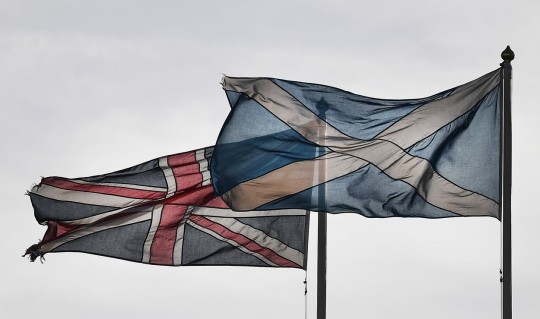
This is why ironically I believe in Brexit even if our current crop of incompetent politicians are making a real dog’s dinner out of it.
Passions aside, for me Brexit is an opportunity to reboot unionism between England, Scotland, Wales and Northern Ireland.
It may twitch my High Tory nerves a little but I am coming around to the view that Brexit, the biggest ever vote of confidence in the political project of the United Kingdom, is an opportunity to fashion a new unionism. This new unionism might well have a sharper focus on citizenship and rights but it might also trash the canard that Brexiteers are little Englanders. A clean Brexit can rejuvenate marginalised and fraying institutions that were once the bedrock of a collective national identity. But only if we re-orienteer ourselves and go back to the original principle that allegiances of Unionism are to institutions and symbols of nationhood and shared national values. If we can do that as a union then one might be able to capture a greater diversity that narrow nationalisms rather than widening them - under of course a unifying national figure of a monarch.
Even the most ardent of the free market Brexiteers will have to accept that the best one can hope for is a Unionism as the quintessential one nation politics. Here such Unionism acknowledges the reality of an inegalitarian society made up of people with different talents but tempered by roles and responsibilities that has an ingrained sense of a duty of care to others. But equally Unionism stands for equality amongst citizens governed by the same rules and respecting the authority of enduring institutions. All votes are of equal value in one of the world’s oldest and most successful democracies where MPs serve constituents rather than outside sectional or multi-national corporate interests.
Ironically then the best chance Scotland for its future is Brexit. Brexit will protect the Union that puts the ‘Great’ into Britain. Unionists can be confident we will stay better together in the good Union of the United Kingdom as we leave the bad union of the EU.
Thanks for your question.
32 notes
·
View notes
Text
Risky: The Game of Global Domination
Recently an acquaintance said to me that if Donald Trump wins (or “wins” as the case may be) a second, term, there’s going to be a third World War. I don’t think they’re wrong, but not because of Donald Trump himself. Rather, it’s a matter of the current economic paradigm reaching its uttermost limits.
When I was younger, I used to love my school history textbooks. I was a fast reader and a quick study, and I loved learning. The maps always fascinated me, particularly of these ancient empires. Often my books went into detail regarding their technological and cultural innovations and the effects these empires would have on later societies and cultures.

Alexander’s empire, for example, would bring Greek thought, culture, and art to Asia. Bactria would ultimately become a hybrid Indo-Greek kingdom that would introduce Greek sculpture to the Eastern world. Before this, the Buddha was depicted symbolically as a lotus blossom. It’s after Alexander and the advent of the Seleucid Empire and the Kingdom of Bactria that the Buddha would be depicted in natural, humanistic means in freestanding sculpture. Of course, Alexander’s empire didn’t last, but it’s interesting to think about what might have been if he hadn’t died. Alas.
The Roman Empire tended to receive a great deal of attention too, perhaps for good reason. It would influence practically every country in Europe, after all, and its influence was felt as far away as Cathay. Latin was the language of learning in Europe well beyond the Renaissance. Their system of political thought, architecture, and philosophy would influence countries even in modern times, like the United States.

These kinds of maps inspired awe in me, but also numerous questions. Why didn’t the much vaunted Roman war machine just keep going? Especially in light of the numerous barbarian incursions that would ultimately do it in? Surely an empire as mighty as the Romans could manage to quell a bunch of naked, ignorant Germans. The history of Roman expansion up to Caesar Augustus was one of almost unmitigated success. What happened?
There are numerous factors at work which contribute to an explanation. One such is the nature of travel at the time: generally you went on foot or not at all. The great Inner Sea aided transport of goods and resources throughout the empire. Egypt was Rome’s breadbasket. It’s produce was essential for feeding Rome and subsequently Constantinople. While the agricultural lands of Italy were in fact rich and productive, they were long ago dominated by the Patrician class, which turned its soil towards the production of cash crops. Feeding the vast urban mobs required the importation of thousands of tons of grain, the Cura Annonae.
To put it shortly, a person could only walk so far, so fast, and resources could only be moved so quickly, so far before they began to spoil. Sun Tzu mentions in The Art of War that a single wagon of captured feed is worth ten of what an invading army brings with it. Invasions are costly, dangerous, a huge economic gamble, and this is on top of the tremendous exertions necessary to supply an army so far inland in an empire that relies on relatively speedy seaborne transportation to survive. Between these factors and the internal contradictions gnawing at the empire, it simply couldn’t expand any further.
Ultimately, this would be Rome’s downfall. For all its technology and military might, its economy relied on expansion. It would attempt to expand eastward into the Iranian plateau, but this would result only in fruitless wars first with the Parthians and then with the Sassanids. The failure or inability to expand would result in it cannibalizing itself to death until it succumbed to Germanic incursions.
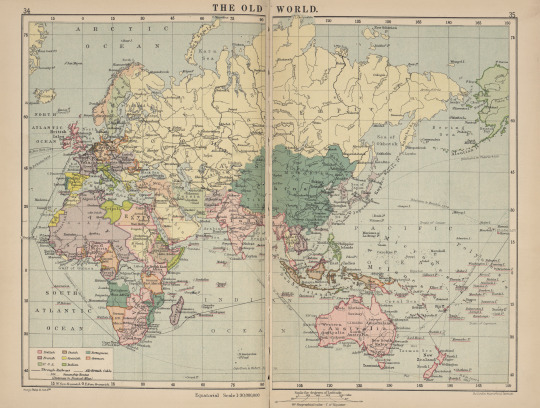
In my history books, on the subject of World War I, the explanations for what precipitated the war were rather simple. The Archduke gets shot (for some reason), and the system of secret alliances, along with the military buildup within each empire, lead to the ruinous war. Sometimes it would hint that Europeans had become complacent, that they hadn’t experienced a continental war since Napoleon or the Crimea. In others the explanation was the pride instilled in populations by burgeoning nationalism. Rarely if ever was the economic dimension even mentioned.
The state of the world by the beginning of WW1 was a rather dismal one. The scramble for Africa was complete, and in Asia what wasn’t already claimed by China or one of the European powers was being scrutinized with greedy eyes by Imperial Japan. China was sick and increasingly feeble as capitalist inroads eroded the foundations of thousands of years of the Chinese Imperial system, and the importation of opium was rotting out the rest.
Essentially, whatever had been “up for grabs” had been claimed. The Americas were more or less in the de facto sphere of the United States. Almost everything else had a European flag on it (and yes, that includes the Turks). Whatever the asspained dullards on this website might blubber and shriek, imperialism isn’t the exclusive demesne of “White people.”
Countries like Germany and Italy were Johnny-Come-Latelies in regards to Imperialism. Previously, Germany would exist, insofar as it could be said to, as the “Holy Roman Empire,” which was none of those things. It was a miscellany of small, independent states with regional and religious rivalries dating back hundreds of years or more. It wouldn’t be until Napoleon that the HRE would be officially disbanded and the process of conglomeration under Brandenburg could begin in earnest. By the time there actually is a Germany, the fledgling empire would have to scramble for whatever was left.
At its apogee, just prior to the first Great War, Germany would have a population of approximately sixty-five million people. Great Britain would hardly approach that, but then she was hardly alone. The population of the British Raj was somewhere in the neighborhood of three-hundred-and-fifty million people. The Industrial Revolution was well under way by this point, but the majority of production still required manpower and labor, skilled or unskilled.
You might well imagine then that this leaves a country like Germany, even with its scant and marginal colonies, at a severe disadvantage. Napoleon would plant the seeds not only of the German Empire, but German Industry. To compete, Germany would need by necessity to become a sophisticated industrial power if it wanted to have a hope against the hundreds of millions of people in the British or French or Russian Empires. The same would go for Japan as well. It didn’t take a genius to see that it was either colonize or be colonized.
By 1914, the Imperial economic system had reached its limit. There was nowhere left to colonize, explore, or claim. While increasingly feeble, China was still too formidable (and profitable) to simply invade and annex. At last the European Empires had to confront one another, like it or not, and the military buildup prior to this conflict is testament to that fact.
Suppose for a moment if you were to imagine the GDP of these industrial empires as singular units produced at the end of every year, the sum-total of production traditional and industrial. If the British Empire produces 2 and the German Empire produces 1, then the first year it would be 2:1, the second 4:2, the third 6:3, and so on. This is without taking into consideration the accumulative effect of industrial and technological development. The BE wouldn’t only produce 2, then 4, then 6, but 2.1, 4.4, 6.8, and Germany 1.1, 2.2, 3.4, 4.5. The British simply have more men and women working and producing than Germany. That’s more people to work the fields, factories, and universities. Without intervention Germany would be doomed to lag behind Britain, subject to its economic domination.
While factors such as nationalization and secret treaties contributed, the economic dimension was the main precipitate of the conflict. These unresolved contradictions would in turn go on to produce the second World War. Lebensraum wasn’t some idle delusion of der Fuhrer, but an economic necessity if German Industry hoped to compete on a planet a full quarter of which was the exclusive domain of the British Crown, not to mention the other empires of the world at the time. One must either upset the paradigm or resign oneself to subjugation. The Second World War would resolve some of these contradictions and pave the way not only for the “Cold War” ostensibly between Western Democracy and Eastern Communism, but also the unprecedented expansion of Capital.
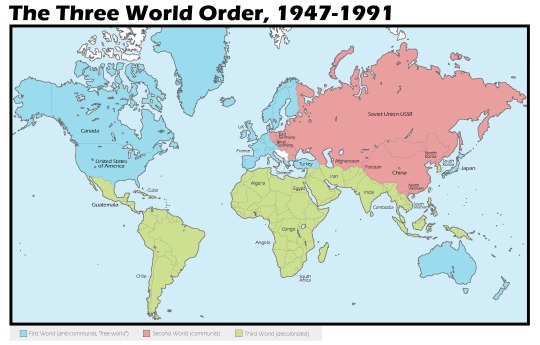
I have only the vaguest recollection of the fall of the Soviet Union. I recall the 90s as being a time of unbridled enthusiasm and optimism in the US. Finally, without the thorn of The Evil Empire in our side, we could do all the great things we dreamed of. Communism was dead, and American Freedom and Democracy were the things that buried it. The threat of nuclear annihilation evaporated like a bad dream. It was a new world, but much too similar to the old one.
There’s an ancient Vulcan proverb: “only Nixon could go to China,” and he did, making inroads for global capital in the process. When the USSR was finally disintegrated (or dismantled), the ideological and economic counterpode to the US was suddenly gone. The unifying ideological force in the United States was gone, and for all intents and purposes whatever impediment to capital along with it. I don’t think I’ll shed any tears for the USSR, but however one slices it, the US and all which that entails was almost entirely unopposed. The pretense of international law would keep NATO from running roughshod over what remained of these ideological holdouts, but there was no longer opposition significant enough to stop the US from doing whatever it wanted to do. The “hard power” of the US military worked in tandem with the “soft power” of organizations like the IMF and World Bank to spread the good news of laissez-faire capitalism, which brings us inexorably to now.
Capital has suffused practically every country on the planet. Even old communist (or “communist”) holdouts like Cuba and North Korea are softening their stance on private enterprise, such is their theoretical and economic sterility. China, rather than being a cautionary tale of reactionary revisionism in the face of dealing with capitalism is seen as an example to be emulated. The treatment of workers there is infamous, the oppression of workers seeking to organize obscenely blatant. China would even come to the rescue of global capital in the 07/08 financial crisis. The complete collapse of the global economic system would be prevented by what should have been its greatest enemy. Alas.
Expansion is a necessity for capitalist economies. It is completely unavoidable and totally essential to its survival. By its nature, capitalism collects wealth and concentrates it, thus depriving itself of the very lifeblood it needs to function. If there is no one capable of consuming, that is without the capital with which to consume, then whence cometh production? Production to the ultimate excess is an integral feature of capitalism as well. The more of a commodity is produced, the lesser the scarcity, and subsequently its diminished value, actual or perceived. A tremendous mound of wealth is piled up which no one can access, because the tokens of access are monopolized by an incredibly few number of people, who have no need for the knick-knacks and baubles they produce to amuse the proletariat. It molders while millions starve, for no other reason than spiteful greed.
We’re left then under circumstances not unlike that in the early 20th century. Capital has no place else to expand, no other great mineral or material wealth to appropriate and exploit. The capitalists realize this as well. The US is spending trillions to prepare for an inevitable showdown with Russia or China or both. It’s the ultimate conclusion of the so-called “New American Century,” the reactionary effort to ensure American hegemony in the face of the Russia petro-state and the constantly developing economic, technological, and demographical weight of China. As climate collapse progresses, these contradictions are only going to come into sharper and more pronounced relief. Clinton began it with adventures in the Balkans. Bush II continued it in crushing practically defenseless nations in the Middle East. Obama exacerbated it with his “Pivot to Asia.” Trump continues it with his reckless bellicosity towards Iran and North Korea. The military efforts of each of these administrations points towards the purposeful isolation of China and Russia. The Pentagon seeks to crush any potentially unfriendly states, great or small, with the long term goal of depriving their chief adversaries of any succor in what they imagine to be the conflict to come. History shows us just how frequently out of touch the military establishment is with reality. America is convinced of its own special place in history, its uniqueness, and absent any enemy of respectable capability, its invincibility. Time and again the US military has been proven demonstrably wrong, and time and again they fail to learn this lesson.
Ironically, their integration into global capital is what painted the target onto China and Russia’s backs. The Chinese working class has becoming wealthy at the expense of the American and European working classes. The sale of necessary petro-chemicals and China’s status as “the workshop of the world” have concentrated vast sums of capital within them. Every passing day bleeds the West dry and enriches the East. While an inevitable motion of the Invisible Hand, this is viewed as an unacceptable aberration by American and European capitalists. Lesser capitalists in so-called emerging economies or developing countries, such as Brazil, India, Pakistan, Bangladesh, and so on, can sense the direction of the wind as well and are seeking to align themselves against their regional rivals. History might look back and recognize that we are in the opening moves of this next great conflict already. Russia is taking an aggressive stance at home and abroad to stymie American efforts. China spreads roots ever deeper into African soil, a continent that the US views as its sole domain. Trump diverted two carrier groups to the Sea of Japan to intimidate North Korea and by extension China, and even went so far as to invade Syria in complete contravention of international law and shoot down a Russian jet.

2019 isn’t exactly like 1919, however. For better or worse, our technology has advanced substantially, dangerously. Nuclear weapons are more potent than they were at their advent in the last century, but the threat of mutually assured nuclear annihilation disappeared with the USSR. Two generations now have grown up ignorant of the nuclear specter hanging over them. Nuclear war is something for movies and history books. No one talks about it. No one mentions it.
Advances in technology have always cut deepest the working class. Industrial machinery obviated the need for millions of serfs. Telecommunications technology has in our day obviated the need for billions of workers. Perhaps an even greater deterrent to the bourgeoisie pressing The Button and annihilating the world in atomic hellfire was the inescapable economic losing prospect that would ensue. Money would be worthless. Material wealth would be destroyed. The millions of human chattel they required to facilitate their life styles would be turned to dust. It’s one thing to take the other guy with you into oblivion, it’s another thing entirely to go blithely marching into it yourself.
Now, however, the bourgeoisie have no use for the reserve army of the working class. Machinery has become so sophisticated that whole factories can operate without so much as a breathing janitor. Rather than a begrudging asset, the working class represents a liability. We can all see what is happening to the planet. We can all see what capitalism is doing to us and the people we love. The bourgeoisie can see the inevitability of the proletarian backlash to their excess, stupidity, and greed. They push STEM subjects on the workers while keeping the Humanities for themselves. They know their history and know it well. They know what happens when the peasants have had enough cake.
Whether because they actually believe it or have deluded themselves with the fantasy, the American missile shield that has been so carefully erected around China, Iran, and Russia is a white elephant. It doesn’t work, even with all the cards stacked in its favor. That doesn’t really matter, though. Capitalism doesn’t care whether or not something works, only that it is believed in enough that rubes will buy it. Whether the Pentagon and NATO know this or not, they are still basing their future plans around the supposed functionality of this system. They either believe or wish to believe that, in the event of a nuclear exchange, they will be reasonably shielded from the infernal holocaust which will ensue. The bourgeoisie is ever superficial. They don’t care for culture or history. Let New York be flattened. Let the Louvre be incinerated. Vaporize the Kremlin and annihilate the Forbidden City. These aren’t losses to them after all. They only care for something insofar as it profits them, and nothing is more profitable than the prospect of rebuilding a city, a country, a civilization, and best of all it would be a civilization in their own image—the ultimate bourgeois revolution! As they emerge from their bunkers and silos to a silent planet, they’d have the technology, resources, and know-how to put the pieces back together again. No more Marxism to rile up the impertinent slaves. No more democracy to impede their whims. No more gods to flaunt their authority above these earthly masters. Just the rule of Gold, and those who have it. Finally, there will be resources aplenty, even in the event of complete ecological devastation. There will be only the bourgeois and their retainers. Atomic fire reduced the stupid, teeming billions to dust, a happy little accident of the nuclear conflagration. Not a tear would be shed, only sighs of relief. It turns out you can take it with you, and by this they establish their heaven on earth.

2019 isn’t 1919. Our circumstances are different, and perhaps even more urgent than those of the working class of generations past. The ravages of capitalism have left our planet irreparably damaged. The most intense period of reaction, through the Cold War and on through the collapse of the Soviet Union to today have rendered the Left, such as it is, fractured, impotent, and broken. Capital has learned its history well and spends billions in order to keep the proletariat under its massive thumb. To say that things were dire would be putting it mildly.
But all is not lost.
The Second International was undone by the first World War. Abandoning the ideal of Internationalism, millions of workers rallied to their nations’ calls and killed themselves by the millions. The development of a global consciousness existed but only in an embryonic state.
Just as Lenin said, the Capitalists will sell us the rope we hang them with. The ubiquity of American culture has created, like it or not, a layer of universality that spreads across the globe. The Internet too has facilitated the development of an international proletarian culture. The sophistication of travel, both domestic and foreign, has likewise spread the roots and seedlings of an international understanding that supersedes parochial tribalism. “Globalism,” or so it is called, has done the marvelous work of eroding the sanctity of the nation-state. The bourgeoisie is scrambling to undo the damage, but there’s no putting the genie back in the bottle. That borders are superfluous, even authoritarian, is an idea gaining coin and traction among all levels of the working class. Those that have circumvented them have no respect for them. Those trapped by them harbor growing resentment to the limits of their cage. The injustice is plain to those with plenty made to look out at the starving multitude, whose starvation enables their own feasting. Even those unsympathetic to the cause of labor are ground to dust by the ever proliferating demands of capital exploitation. Even those mode deluded and devoted workers are breaking down physically, mentally, spiritually beneath the onslaught of capitalism.
Unions in the US are standing up with growing confidence. Workers there and abroad are beginning to realize just how precarious the situation they find themselves in. India was host to the largest organized labor action in history not two years ago. Teachers in the US are growing restive beneath the weighty boot of austerity. The insanity of the Right, unguided by political ideology or personal conviction, lashes out like cowards only at the most vulnerable. Only the Left offers refuge to this vile, stupid violence. Only solidarity offers respite to the corrosive forces of capitalist economics. The Right consists only of the weak. The Left constitutes a plethora, weak and strong, whose collaboration makes the whole stronger. The Right needs a mythological father figure to have coherence and purpose. The Left is propelled by the collective will of all, towards the collective benefit of all. Cut the head off a snake and it will wriggle like a worm until it dies. Cut the head off a hydra, and two more take its place.
This should not be taken lightly. The labors ahead will take the collective effort, the unified dedication, and total collaboration of all of us. We not only have to prevent our own deaths, but preserve our planet. We not only have to ameliorate the wrongs of the past, but build a future congenial to all. We’re faced not only by the most developed, wealthy, entrenched plutocracy in history, armed with the most advanced weaponry and politico-military theory, but one which has spent the last century preparing for exactly such a conflict. Our work is cut out for us, to say the least.
But we can do it. We have to do it. There isn’t any other option, any other alternative. We either survive as a whole or perish alone. We either achieve socialism or succumb to barbarism. The dialectic, always in motion, has brought us to this point, to this ultimate historical moment and we will either rise to meet it or be crushed beneath it, without a whimper, anonymous bones lamented and remembered by no one. There is only one possible conclusion, and you know it. We all know it. All we have left is to embrace it.
Workers of the world, unite! You have nothing to lose but your chains, and a world to win!
#marxism#capitalism#communism#trump#world war 3#world war 2#world war 1#china#russia#iran#united states#economics#history#imperialism#unions#labor#labour#labor history#world history#proletarian history#proletariat#working class#extinction#rebellion#insurrection#class warfare#the end of history#the end of the world#the beginning of the new#internationalism
107 notes
·
View notes
Photo


The fall of Granada in 1492 for the first time allowed Ferdinand to direct all his energies outwards in pursuit of a more active foreign policy. Two areas received his special attention: the Catalan - French border, and Italy. No true king of Aragon could resign himself permanently to the loss of the Catalan counties of Rosselló and Cerdanya. As the original homeland of the Catalans, they were considered as integral a part of the dominions of the kings of Spain as the kingdom of Granada, and their recovery was a prime object of Ferdinand’s policy. His alliance with England at the Treaty of Medina del Campo in 1489 was intended to facilitate a Spanish invasion of France to recover the counties, by obtaining the assistance of an English diversion in the north. This particular project was unsuccessful, but a new opportunity shortly arose to acquire the counties, and this time without bloodshed. Charles VIII of France had conceived his idea of an Italian expedition, and in order to secure the quiescence of Spain while he was away on campaign, he agreed by the Treaty of Barcelona of January 1493 to restore Rosselló and Cerdanya to Ferdinand. For the next century and a half therefore, until the Treaty of the Pyrenees, the counties became once more a part of Catalonia, and Spain’s frontier with France lay again to the north of the Pyrenees. Satisfactory as was the bloodless reacquisition of Rosselló and Cerdanya, Charles VIII’s invasion of Italy represented a new, and more serious, threat to the Crown of Aragon. Sicily was an Aragonese possession, while the kingdom of Naples belonged to a junior branch of the house of Aragon. A European coalition was needed to check the advance of Charles VIII; and the achievement of this coalition in 1495 in the shape of a Holy League between England, Spain, the Empire, and the Papacy, was one of the greatest triumphs of Ferdinand’s foreign policy. In building up this coalition, Ferdinand laid the foundations of a diplomatic system that was to maintain and extend Spanish power throughout the sixteenth century. The success of the missions he sent to the various European capitals in pursuit of a Holy League had helped persuade him of the value of the resident ambassador – a figure increasingly employed by certain Italian states in the late fourteenth and fifteenth centuries. During the 1480s and 1490s, in his efforts to secure the diplomatic encirclement of France, Ferdinand established five resident embassies, at Rome, Venice, London, Brussels, and the migratory Austrian Court. These resident embassies, which were to become permanent fixtures in Spain’s diplomatic network, played a vital part in furthering the success of Spanish foreign policy. The men chosen to occupy them, like Dr Rodrigo de Puebla, the ambassador in London, were men of considerable ability, drawn from the same legally or clerically trained professional class which provided Ferdinand and Isabella with their councillors, judges, and administrators. Francisco de Rojas, who served in Rome and elsewhere, was a hidalgo of moderate means; de Puebla was a low-born converso with legal training, and a former corregidor. Both were Castilians, who were, in fact, much better represented in Ferdinand’s foreign service than might have been expected in the light of the Crown of Aragon’s much longer diplomatic tradition. They and their colleagues served Ferdinand with a loyalty that was by no means fully repaid. Invaluable as he found the reports of his resident ambassadors, he often failed to send them instructions, neglected to pay them, and not infrequently double-crossed them. There were, too, grave deficiencies in the whole organization of the Spanish foreign service. The absence of a fixed capital meant that diplomatic documents were scattered across Spain in a chaotic trail of papers which marked the route taken by Ferdinand on his travels. Letters went unanswered, treaties were lost. But the efficiency of the service increased as the reign went on, and if it was not yet as professional as that of some of the Italian states, it was far superior to the diplomatic services of the majority of Ferdinand’s enemies and allies. During the last years of his life, Ferdinand’s diplomatic ability was revealed at its greatest, and won further advantages for a Spain he had already served so long and so well. As always, his aim was to preserve the Aragonese possessions in Italy and to prevent any further expansion of French power, but he also seems to have looked beyond this to the establishment of a general European peace which would enable him to undertake a crusade for the conquest of Egypt and the recovery of Jerusalem. This perhaps rather unexpected ambition remained unfulfilled, and was transmitted, along with the rivalry with France, to the Flemish grandson whom Ferdinand so heartily disliked. He did, however, achieve a more restricted, and perhaps more useful, ambition in these final years.He had long wanted to round off his conquests with the acquisition of the little independent kingdom of Navarre, of which his father, John II of Aragon, had once been king. Since then, Navarre had passed in turn to the families of Foix and Albret. Claiming that a secret alliance between the Albrets and France included a provision for a joint French-Navarrese invasion of Castile, Ferdinand sent an army into Navarre under the command of the Duke of Alba in July 1512. The country was occupied without difficulty, and Ferdinand made use of his alliance with the Papacy to obtain the formal deposition of the Albrets and the removal of their sovereign rights. The acquisition of Navarre was a source of enormous satisfaction to Ferdinand on sentimental grounds, but he can hardly have been unaware of the other advantages of its possession, which were listed by the Florentine Guicciardini, then on an embassy to Spain. According to Guicciardini, Navarre was a fine state, not so much for its revenues, which were relatively small, but for the ‘conformity’ which it had with Ferdinand’s other kingdoms. It was valuable, too, because it closed the passage into Spain, while allowing the Spaniards entry into France. Here were the defensible frontiers and the relative uniformity of customs and language, which were increasingly being regarded as desirable features for a prince who was bent on extending his dominions. Politically, however, the uniformity was no greater than that which existed between Castile and the Crown of Aragon. The kingdom of Navarre possessed, and was allowed to retain, its own customs, coinage, and institutions, including a Cortes and a Diputació. As might have been expected from Navarre’s past association with the Aragonese dynasty, it was joined on its annexation to the Crown of Aragon; but three years later Ferdinand changed his mind, fearing perhaps, as the chronicler Zurita suggests, that union with the Crown of Aragon would encourage the Navarrese to extend their liberties and exemptions. Perhaps also because he wished to commit Castile to the protection of Navarre, he arranged in 1515 for its definitive incorporation into the Crown of Castile, although its semi-autonomous government continued to remain untouched. If Ferdinand hoped to placate his enemies in Castile by the gift of Navarre he was to be disappointed. His government, dominated by Aragonese officials, was becoming increasingly unpopular, and Castilian nationalist sentiment – briefly disillusioned by the behaviour of the Archduke Philip – was again turning to the Burgundians for help. The Great Captain, the Marquis of Priego, and other leading nobles were all planning in 1515 to leave Spain and take service with their new hope, Charles of Ghent. But this proved to be unnecessary. Ferdinand was ailing, and he died at the village of Madrigalejo in Estremadura on 23 January 1516. The man who had achieved so much – the Union of the Crowns, the annexation of Navarre, the ordering of Spain and its promotion to the ranks of the great European powers – died embittered and resentful, cheated not by his opponents, all of whom he had outwitted, but by a malignant fate which had placed his masterwork in the hands of alien descendants. - J.H. Elliott, Imperial Spain: 1469-1716 @varaemilaje
54 notes
·
View notes
Text
Celebrating defeat
I got a chance to visit the Bhima-Koregaon "victory pillar" in Koregaon, in Maharashtra, commemorating the British East India Company victory over the Peshwa of the Maratha Confederacy on 1 January 1818 and ensuing rule of the British East India Company in nearly all of Western, Central and Southern India.
Every day, on my visit, I go the victory memorial in Koregaon. A long pillar in bright stone is the main attraction, river Bhima that flows close to it. I'd like to swim on it but the water was very dirty like any other Indian river so almost forbidden. Near the village are the same old poor villagers and their mud houses which are painted with the names and pictures of their caste leaders.
On the walls of the memorial which is painted the names of great Bhima-Koregaon victories. Who was defeated at Bhima-Koregaon? The Indians. Who was the 1st Regiment of Bombay Infantry, Mahars, British East India Company, Captain Francis Staunton and other British officers fighting for? The Indians.
The "victory pillar" gate proudly announces the year the victory 1 January 1818 more than a century and a quarter before Independence. Who did the 1st Regiment of Bombay Infantry, East India Company mercenaries, Mahars and Captain Francis Staunton and other British officers shoot, bayonet and mine and blow up on that date? Other Indians.
The brutalities were worse than Jallianwala Bagh. Colonel Dyer only gave the order in 1919 at Jallianwala Bagh. The killing was done and triggers pulled by the Gurkhas of Gurkha Rifles, and by the soldiers of Baloch Regiment.
This is an ugly truth. I am not revealing any secret. I say that till August 14, 1947, the soldiers loyal to the Crown of England renamed itself a nationalist Indian army and a nationalist Pakistan Army, the next morning. We Indians, especially the Hindus have no history before that of a nationalist army, unlike, Muslims and Christians.
There are mentions about the fighting and warfare tradition of the Hindus or the Indians those goes back at least 2,500 years. The first Greek historian Herodotus mentioned that Indians at the battle of Plataea in 479 BC were hired by the Persian king Xerxes. The Indians fought heroically, though the battle was won by the Greek alliance and the Persian king Xerxes lost.
Eulogizing this tradition, Urdu poet Ghalib, who died in 1869, said proudly: "Sau pusht se, hai pesha-e-aba sipahgari," meaning our family profession has been soldierly for a hundred generations. The world has great respect for the Indian soldier's capabilities. Indians taught the European gorilla, bayonet and trench fighting.
The flattering biographers of Alexander the Great, Arrian, Quintus Curtius Rufus and Plutarch, mentioned that the greatest general has to use treachery to defeat Indian soldiers. This action stained the greatness of the conqueror. He had a treaty with a group of Indian soldiers and then they disarmed and deceitfully had them massacred. He used this deceit because he was scared of their fighting skill.
I have seen in India this respect mounted to reverence. Now, I have seen, it is almost a new cult of Army worship in the country. Fauj (army) and faujis (soldiers) are above criticism. The nation cannot listen to anything against the army.
People are upset with the subsequent Union governments because they have changed the rules which lower an Army officer's ranking with a bureaucrat of similar rank. Soldiers must be higher than bureaucrats. It is a well-known fact that when all fail, army steps in whereas bureaucrats have no achievements.
Same harassment was there with one rank, one pension. They had to wait for this for decades whereas the schemes benefitting the vote banks are approved and implemented in a day. Almost more than 40% of all central and state funds are grabbed by these vote banks. I have seen this national sentiment that serving and retired soldiers must get better salaries, pensions and benefits than the bureaucrats. Their contribution is much higher and necessary. Now, they are all the time on the battlefield.
A retired soldier has to commit suicide over OROP although the Aam Aadmi Party announced Rs 1 crore to the family of the soldier. Even family members of controversial deaths like that of Akhlaq, Tabrej, Pahalu Khan, Rohit Vemulla etc are showered with monetary help and jobs but at the death of a soldier, I have never seen such aggressive and competitive bidding over the bodies of a soldier. Why? Because the politicians are making a nation in which vote banks and controversies are more important than the death of a soldier.
However, the nation thinks differently. It wants all of us must pay constant and unconditional obeisance to our army. We sleep comfortably because our soldiers are awake. This is an accepted unquestioningly.
It is because of this reality we need a strong army. The government has very rightly spent Rs 59,000 crore for 36 warplanes for the defence forces. Some disruptive elements criticized this deal. We cannot because this purchase is an act of nationalism. In the 1971 Bangladesh war, we used fighters in combat and bombed the enemy very heroically.
We need more warplanes. We are always at risk of war. We are always not only surrounded by the external enemies but inter enemies have also become big threats. Naysayers ask, who are we going to war against? It is an irrelevant question. The Army must be strong and care first so that we can sleep and our boundaries are not further shrunk and encroached and I won't have to celebrate the defeats.
0 notes
Photo
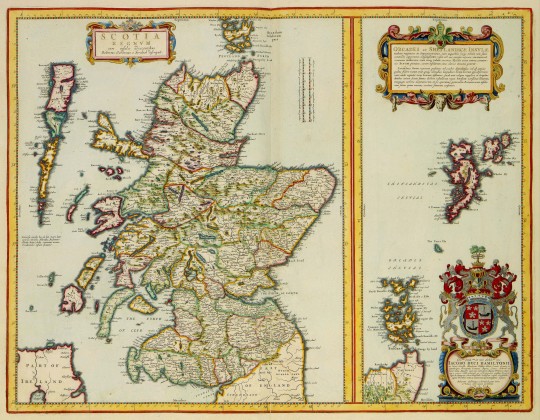


February 27th 1560 saw the Second Treaty of Berwick between England and Scotland.
The Scottish reformation was under full swing, but those pesky French were causing problems and the Protestant Lords of the Congregation could not shift them, so looked south for help, unthinkable up to now, English troops were invited into Scotland to fight French and Scottish Catholics. Remember this was only 15 years on from the battle in my last post, and less than 13 years after The Rough Wooing, quite a remarkable turn of events in such a short time.
Queen Elizabeth was keen on the Berwick treaty was because she feared that France intended to rule Scotland, which would have threatened her realm. The two had signed an accord that stipulated that the crowns of Scotland and France would be unified if there were children of the marriage of Mary Stuart and François, then the King to be, and the crown of Scotland would be given to France if there were not. , Elizabeth feared such greater unity between Scotland and France, and in particular, Mary Stuart’s claim to her throne.
Another factor concerning Elizabeth was the desire to further hasten the Reformation in Scotland, which is why the Protestant Scottish Lords of the Congregation (sounds like a great name for a rock group) were trying to get the Catholic French expelled. For Elizabeth, if Scotland were Protestant, that would make it an ally and help protect England.
The result of the discussions was that an English fleet and an army came to Scotland to help expel the ten thousand French troops that were defending the Regency of the Catholic Marie of Guise. Armed conflict ensued and the French troops retreated. They fortified the port and town of Leith against the combined force of English and rebel Scots and so began the Siege of Leith, on the 17th of March, 1560.
The English Lieutenant General Norfolk was the man sent north by Elizabeth Ito support the Lords, whilst his compatriot, Admiral Winter, was in charge of the blockade and besieging of the Forth at Leith, occupied by the allies – the Scottish and French naval forces. For safety then, Marie of Guise had flitted to Edinburgh Castle, which event took place on the 1st of April.
Interestingly, an old Scottish prophecy had foretold great changes “when two winters were to be seen in Scotland in the same year.” And so it happened that whilst Admiral Winter was told to pick any quarrel he could with the French and prevent reinforcements or the Scots, eponymous winter storms coincidentally wrecked a second French convoy on its way to Leith. Thus two winters did indeed prove to have been a decisive factor in the expulsion of the French from Scotland. Spooky, or what?
Eventually, the Gordon Earl of Huntly, a Catholic, came to terms with the Congregation and by then, hardly a Scot of note remained on the French side, except Bothwell and the Bishops. Following this shift, on 27th February, 1560, the Treaty was concluded between Norfolk and the Scottish Lords – both Protestant and Catholic.
The Treaty was “for the defence of the ancient rights and liberty of their country”, as the original words “for the maintenance of Christian religion” were left out of the final version. The Lords bound themselves to resist any closer of a union between Scotland and France than existed through Mary’s marriage and to assist England against France with all their forces if France invaded England north of York. In addition, they were to assist with 2000 foot and 1000 horse if France invaded elsewhere.
On the 11th of June, 1560, Mary of Guise died and figurehead of the Scottish Catholic resistance was removed. Later in the year, Mary, Queen of Scots, was widowed and returned to Scotland – but that’s another story.
Another treaty, Treaty of Edinburgh, was signed in July 1560, agreeing that French and English troops would withdraw from Scotland. Also included in that treaty was the agreement for Mary, Queen of Scots, and François, to give up Mary’s claim to the English crown and recognize Elizabeth I as rightful Queen of England. Mary though, never signed this.
Pics are oa map from around the era, James Hamilton, Duke of Châtellerault and Thomas Howard, Duke of Norfolk, Scotland and England’s representative at Berwick respectively
14 notes
·
View notes
Photo


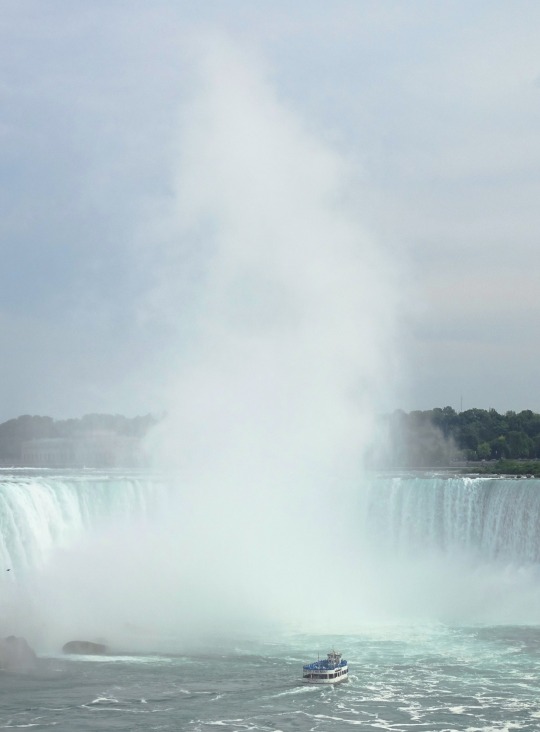
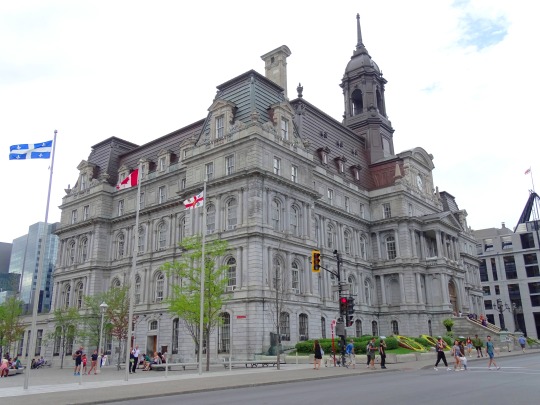
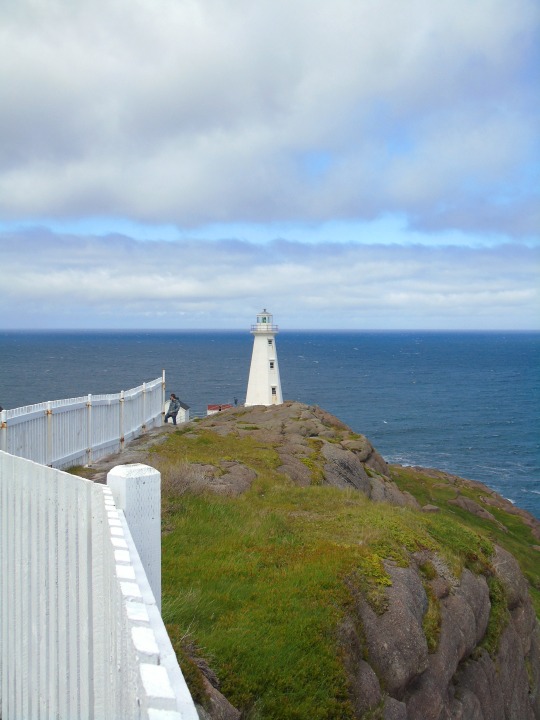




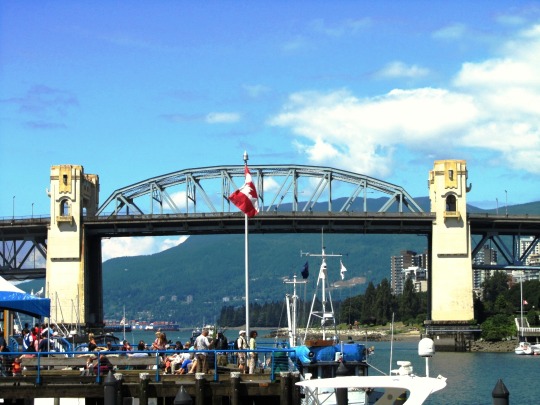
Statute of Westminster (11 December 1931) gave complete legislative independence to Canada, Australia, New Zealand, South Africa, Ireland (Free State), and Newfoundland (not then part of Canada).
Anniversary of the Statute of Westminster
The Anniversary of the Statute of Westminster is observed on December 11 every year. Although it is a holiday, Canadians still go to work, and it is pretty much an ordinary day for them. It is a nod to Canadian independence. The “Union Jack,” where logistics allow, is flown along with the Maple Leaf on federal buildings, airports, military bases from dawn to dusk to mark this day. It commemorates a British law that was passed on 11 December 1931. It was Canada’s final achievement of independence from Britain. The Statute of Westminster gave Canada and the other Commonwealth Dominions legal equality with Britain. These countries now had full legal freedom — except in areas which they chose. The Statute also defined the powers of Canada’s Parliament and those of the other Dominions. The day is mostly celebrated in Canada.
History of Anniversary of the Statute of Westminster
Before 1931, the British government had much influence over legislation passed by the Commonwealth Dominions (Canada, Australia, New Zealand, South Africa, the Irish Free State, and Newfoundland). Things began to change after the First World War — after the sacrifices of Canada and other Dominions on the battlefield stirred feelings of nationhood and desires for complete autonomy.
Canada began to assert its independence in foreign policy in the early 1920s. In 1922, Prime Minister William Lyon Mackenzie King denied help to British occupation forces in Turkey without first getting the approval of his Parliament. Later on, in 1923, Canada signed a fisheries’ treaty with the United States without seeking permission from Britain. In 1926, Canada established an embassy in Washington, DC, and Vincent Massey was named its first Canadian minister. This made him Canada’s first-ever diplomatic envoy posted to a foreign capital.
The Imperial Conference of 1926 was a more formal step. It gave legal backbone to the Balfour Report from earlier that year. The report had announced that Britain and its Dominions were constitutionally “equal in status.” The work of changing the Commonwealth’s complex legal system continued at the 1929 Conference on the Operation of Dominion Legislation. The Imperial Conference of 1930 further confirmed the need for the Dominions to have greater autonomy of their legislature. On 11 December 1931, the Statute of Westminster was passed by the British Parliament. This was done at the request and with the consent of the Dominions. This statute ratified the Dominions’ legislative independence. Although it had been granted the right to self-government in 1867, Canada did not enjoy full legal autonomy until the Statute was passed on December 11, 1931.
Anniversary of the Statute of Westminster timeline
15th and 16th Centuries Age of Discovery
Portugal and Spain pioneer European exploration of the globe, leading to the discovery of continents such as the Americas.
1757 Britain in India
Britain becomes the dominant power in the Indian subcontinent after defeating the Mughal in the Battle of Plassey.
1783 The American War of Independence
The war results in Britain losing some of its oldest and most populous colonies in North America.
1956 The Suez Crisis
The Suez Crisis confirms Britain's decline as a global power, because the Egyptian president nationalizes the Canal, owned by the Suez Canal Company, and formerly controlled by French and British interests.
Anniversary of the Statute of Westminster FAQs
Who is the current sovereign under the Statute of Westminster?
Today, the Statute of Westminster’s restrictive clause is still valid, so the current sovereign is Queen Elizabeth II. Her acting advisors are known as federal ministers of the Crown.
Which is more important: the Statute of Westminster or confederation?
The Statute of Westminster is arguably a more momentous occasion in Canada’s journey to sovereignty than to a confederation.
When did New Zealand adopt the Statute of Westminster?
The Parliament of New Zealand adopted the Statute of Westminster in November 1947.
How To Observe Anniversary of the Statute of Westminster
Explore from your armchair
Study your country’s history
Play a game such as balderdash
We have only given you brief information on the statute. Observe the anniversary by reading in detail about the statute — and things relating to it.
Britain had successfully colonized some of the biggest nations in the world. On this day, read about your country’s past — colonial or not — and try to understand how colonialism continues to affect the world today.
There are games that have categories including really strange laws from around the world, which would be fun with friends and family. While you are all laughing, remember that most laws had reasons, and have fun discussing that.
5 Facts About Canada That Will Blow Your Mind
Canadians eat the most donuts in the world
Bigfoot is legally protected in Canada
Smelling bad is illegal in Canada
The money is vision-impaired friendly
Canada has two national sports
There are only 30 million people in Canada, but over 1 billion donuts are eaten annually.
It is illegal to kill a Sasquatch in British Columbia.
Anyone smelling offensive in a public place could face two years in jail.
Canadian banknotes have braille writing on them for the blind.
Ice hockey and lacrosse are the national sports of Canada.
Why We Love the Anniversary of the Statute of Westminster
It’s a part of history
This day encourages us to explore our history
A day to learn and chat about laws
The Statute of Westminster played an important role in the history of Canada and other former dominions. The anniversary acknowledges this crucial day in history.
It’s easy to forget history when we are caught up in the hustle-bustle of our daily lives. The Anniversary of the Statute of Westminster encourages us to take a look at our history and find out more about our country’s past.
Celebrate the Anniversary of the Statute of Westminster as a day to learn about the rules, acts, and laws that are applicable in your country.
Source
#Statute of Westminster#11 December 1931#anniversary#legislative independence#vacation#Canada#Newfoundland#Canadian history#Québec#travel#Quebec City#Ottawa#Montréal#Ontario#original photography#cityscape#landscape#summer 2018#2015#2012#Niagara Falls#Lake Ontario#Cape Spear#Atlantic Ocean#Banff National Park#Alberta#Lake Louise#Dinosaur Provincial Park#Vancouver#British Columbia
1 note
·
View note
Text

How archaic process of Queen’s consent is still used on modern laws
Boris Johnson’s Brexit trade deal and farming shake-up were subject to royal vetting
Rob Evans and David Pegg
Published: 16:00 Sunday, 07 February 2021
On 6 January 2020, a senior civil servant sent the Queen’s top aide, Sir Edward Young, a letter that was clothed in dry formality.
The official, Georgina Collins, said she was writing on behalf of the environment secretary “to seek Queen’s consent to measures within the agriculture bill. This bill contains measures on future agricultural policy that affect the interests of the crown.”
It was the first of four letters in similar tone that were sent to the palace by senior officials at the Department for Environment, Food and Rural Affairs over a period of 11 months. The most recent was dated 3 November.
The letters reveal how the archaic parliamentary mechanism, which originated in the 1700s, is still being used in the present day to give the Queen – an unelected individual – the unique right to be consulted on draft laws that affect the crown and her private interests.
In this case, the correspondence, obtained using the Freedom of Information Act, suggests the government gave the Queen a chance to screen the legislation because it could affect one of her most treasured possessions – the grand Sandringham estate in Norfolk.

An aerial view of Sandringham Hall in Norfolk
At 20,000 acres, the Sandringham estate in Norfolk brings the Queen millions of pounds in farming subsidies. Photograph: David Goddard/Getty Images
As one of the country’s biggest landowners, the Queen is among the recipients of the biggest farming subsidies in England. Over the years she has received millions of pounds in taxpayers’ subsidies for her farm that sits on the estate. Last year the subsidy amounted to £936,000.
A Sandringham spokesperson said: “Farming and conservation are at the forefront of the estate’s practices, and this annual subsidy supports Sandringham’s ongoing conversion to organic farming and commitment to maintaining the local environment and wildlife habitats across the estate.”
The consent procedure requires the government to send draft legislation to the monarch – or, on occasion, the heir to the throne – so that they and their lawyers can examine whether it affects their personal interests, their private property or their public functions.
The most recent example was the act passed on 30 December that implemented Boris Johnson’s post-Brexit trade deal with the European Union. Parliamentarians were told that the Queen had consented to the bill, although – as is customary – there was no explanation given in parliament about how she may have been affected. Another recent example is the agriculture bill.

Boris Johnson signs the Brexit trade deal on 30 December. The Queen gave consent to the act implementing the deal but MPs were not told how she may have been affected by it. Photograph: Leon Neal/AFP/Getty Images
The Queen and her family spend large amounts of the year enjoying, and running, the 20,000-acre Sandringham estate, where they traditionally spend Christmas. The estate, which includes prime farmland, has been owned by her family since it was bought by Queen Victoria in 1862.
As well as producing crops such as wheat, barley, beans, and oats, her farm grows blackcurrants that are sold to make Ribena. It also sells lamb to a major retailer. Eight tenant farmers rent 9,000 acres from the estate.
All of this means that the Queen has a special personal interest in the government’s agricultural policies. During her reign, she and her son – also a major landowner – have vetted at least eight parliamentary bills relating to agricultural issues.
The latest occasion was last year when Johnson’s administration started to take the agriculture bill through parliament. His government hailed the bill as heralding the biggest shake-up of farming policy in England for 50 years.
On 6 January, 10 days before MPs began debating the bill, Collins, an aide to the then environment secretary, Theresa Villiers, wrote to the palace explaining the “intent of the areas where we consider it requires the consent of Her Majesty”.
She outlined specific measures that “will apply to the crown” or “affect the crown’s interests”. These concerned clauses changing the regulation of farming tenancies, promoting fair contractual relationships between producers and the business purchasers of their products, and empowering the government to collect data from farming operations.
Senior Defra officials sent two further letters to the palace, on 27 October and 3 November, as the bill completed its final stages through parliament. These letters centred on the Queen’s notional powers under the royal prerogative to sign treaties relating to international animal and environmental standards.
Peers were told on 9 November that the Queen had consented to the bill. Whether she lobbied behind the scenes for changes in the bill, as documents suggest she appears to have done on other occasions, is not known. She declined to respond when asked by the Guardian if she had made representations to the government.
The answer may not be revealed until the files are released to the National Archives in two decades’ time.
#royals#queen elizabeth ii#queen elizabeth#prince charles#the queen#queen’s consent#the guardian#brf#british royal family
0 notes
Link
“Indigenous food sovereignty was decimated by design: the separation of people from their historic food systems and land is not a side effect of colonialism but a function of it. Canada’s formation is a history of legislating First Nations, Inuit, and Métis out of existence, including by erasing Indigenous food cultures: the Gradual Civilization Act, the banning of potlatch ceremonies, the signing of treaties that exchanged life-sustaining hunting grounds for farmland, livestock, and pitiful amounts of cash. All of it was designed with the purpose of elimination through assimilation.
(...)
While Indigenous food systems were being dismantled, elsewhere in the world food itself began to change. From the early eighteenth to the mid-twentieth century, industrial production, preservation science, manufacturing, marketing, and the hospitality industries transformed the way people ate. This is the period that gave us the refrigerator and the gas stove, food-safety regulations, canning, and frozen dinners. At this same transformative moment in history, Canada’s government engaged in a concentrated effort to eradicate Indigenous peoples and their cultures, including by squelching language, self-government, land use, and hunting rights. Indigenous food practices were excluded as most of the world’s food practices modernized and commercialized (not always for the better), and most Indigenous people were forced to rely on processed and expensive provisions.
Indigenous food sovereignty was decimated by design. It was not a side effect of colonialism but a function of it.
Over a century later, food insecurity—inadequate access to affordable, safe, nutritious food, resulting in negative physical-, mental-, and social-health outcomes—is far more common among Indigenous people throughout Canada than in the population of the country overall. Forced to transition over generations to a Western diet, which many Indigenous communities cannot necessarily access or afford, First Nations people, Inuit, and Métis people suffer higher rates of diabetes and cardiovascular-health issues as a result. The social and spiritual losses are far more difficult to measure.
(..)
“Nutrition North was doomed to fail from the beginning because it’s a non-Indigenous solution to a very complex issue,” says Joseph LeBlanc, who is Odawa from Wiikwemkoong Unceded Territory on Manitoulin Island in Lake Huron and the former executive director of the Social Planning Council of Sudbury. “Nutrition North was explicitly a market-based approach. What they did, however, was further entrench an exploitative market relationship that corporations have in Northern communities. It reinforced the existing food system as if it were the only food system.”
LeBlanc says non-Indigenous Canadians are looking at the problem of food insecurity through the wrong lens. “How do we make food cheaper at the store? Where do you get food in an urban context?” he asks, rhetorically. “That’s very much a Western economic approach.” Even the presumption that there is a standard diet for all Canadians is fundamentally colonialist, says Teri Morrow, a dietitian at Six Nations of the Grand River in southwestern Ontario. “Canadians ate the way we ate when they got here,” says Morrow. “Hunters up north don’t need lettuce. There’s roots and tubers, there’s lichen—a ton of things.”
(...)
In many parts of Canada, Indigenous people’s ability to hunt, fish, forage, and farm is compromised by the degradation of land and water through industrial-scale resource extraction. In other places—often described as “protected”—such as national parks, these activities are frequently prohibited by law. The formation of Canada’s parks, seen by many non-Indigenous people as wildlife refuges where nature is safe from human threat, has long disrupted Indigenous food sovereignty. Canada’s first national park, Banff, “was predicated on the displacement of diverse Indigenous communities,” says Courtney Mason, author of Spirits of the Rockies: Reasserting an Indigenous Presence in Banff National Park. “This was facilitated by park management and supported by the police, missionaries, and tourism entrepreneurs. In part, they were attempting to curb Indigenous subsistence practices of hunting, fishing and gathering, in order to protect emerging sport hunting and fishing tourism economies operating inside the park.” Further development of Canadian parks was largely modelled after Banff, incurring similar displacement and cultural damage. It remains illegal for Indigenous people to hunt in about half of the country’s national parks.
Even where it is possible to hunt, with a few exceptions, wild meat cannot be sold in restaurants, butcher shops, or grocery stores in Canada. This means hunters cannot earn a living from their efforts, and many Indigenous foods cannot be shared in retail or commercial settings beyond reserves or special, limited-licence events. Many coastal communities face a similar challenge as, even while living off of seal meat, the European Union’s ban on seal imports has made it impossible for families to earn revenue from the sale of skins.
(...)
One of the problems, says LeBlanc, is that Canada knows many people depend on the land for their food, yet governments manage our natural resources as if they didn’t exist: “The [Ministry of Natural Resources] doesn’t have the capacity to manage the forest properly, and I don’t believe the Crown has the will to make that happen. Because the interest is in getting money from stumpage.” Genuine transformation, LeBlanc believes, will only come from challenging the seemingly unassailable prioritization of resource extraction. “There’s an opportunity to manage food sources. This would mean a shift in the paradigm from extraction of timber and minerals to the inclusion of food sources.”
(...)
LeBlanc says there is a legal basis for implementing more food-oriented policies. This means, for instance, reforming training for forest-management authorities to include Indigenous world views and rights. In forested areas like the Fraser River canyon there is an alternative, which he and many others advocate for: community-based forestry, in which land is managed by and for the people who live on it. “Community forestry is a movement that started in Nepal in the seventies,” says Susan Mulkey, communications manager for the BC Community Forest Association, “where the government recognized that degraded land, the best stewards of that, the best people to bring it back to productivity, are the communities themselves.” The idea, LeBlanc says, isn’t to reject industry outright but to take an approach that incorporates economic and employment interests without excluding the use of land as a food source.
In the late 1990s, BC began a pilot project for community-based forest management; it now includes over sixty community forests that produce just under 3 percent of the provincial timber harvest. In 2011, following decades of protracted conflict with the government and logging companies, the Xaxli’p reached an interim compromise: the Xaxli’p Community Forest Corporation they had established a few years earlier was given a twenty-five-year tenure over the trees in most, but not all, of their territory. (Prior to that agreement, the province had given a number of companies the right to harvest timber on Xaxli’p land.) Restoring the land and creating a sustainable economy are goals that are built into XCFC‘s corporate mission. The plan is to eventually harvest timber in sustainable quantities and using sustainable methods.
“Our long-term goal is that our community forest will be self-sufficient,” says Nora Billy, a member of the XCFC board of directors. The XCFC plans to balance the conservation mandate with value-added timber harvesting, manufacturing products for sale in addition to selling raw logs. The first step has been ecocultural restoration. This includes promoting moose habitat by removing planted pine trees (to encourage the growth of willow and other wetland shrubs), leaving old fallen trees intact for animal habitat, purifying water, and thinning forest areas that have grown too dense due to post-logging replanting and government fire-suppression techniques. Moose and deer have begun returning to the area.
(...)
LeBlanc says that, over the years, he’s been told by many non-Indigenous people that it is simply too late to save what has been lost. For him, this is both untrue and a device used to perpetuate damage to the land and Indigenous peoples. “It’s a tidy, nice bow to put on top of 100 years of colonialism to say, ‘Our job’s pretty well done—all you need to do is let go of your romantic ideals and we can get on with civilizing you.'
But LeBlanc, Wolfrey, Shawana, members of the Xaxli’p Community Forest Corporation, Morrow, Bell, and many others are not letting go. “The fundamental element of resurgence, resistance, whatever you want to call it, that’s happening in Indigenous youth in particular, is challenging that directly,” says LeBlanc. “I know individuals who do live a traditional lifestyle, in remote communities. They’re not waving a flag around or flying down to Toronto for meetings or answering phone calls from reporters or academics. They’re busy completely entrenched in a traditional lifestyle. And they’re some of the happiest, most food-secure people out there.”
On a policy level, says LeBlanc, decisions about the use of land still exclude Indigenous world views. “There’s a transition that needs to happen in Canada at some point. Ultimately, all of our legislators and decision makers are products of our school system. And they’ve all been conditioned to think of us in a particular light . . . . We haven’t even gotten to the point where we can have a truthful conversation about land.””
0 notes
Link
Independence movements are necessarily decentralist in character, premised on ideas of self-determination, autonomy, and healthy skepticism toward foreign rule. And libertarians are necessarily decentralists to the extent that the principle of individual liberty is served by the practice of decentralism, in which both separate governments and branches within them counter each other, preventing any one force from amassing overweening power.
Secession and federalism are two distinct but related expressions of the decentralist idea, both of which are an important part of the history of the United States. Our country was born through an act of secession, the Declaration disaffiliating the colonies from the yoke of the crown. That document formally set forth the reasons why the American people—British subjects all—chose to “dissolve the political bands which [had] connected them” to the motherland of their forebears.
As a concept in political theory, secession has unfortunately been tarnished by the historical particularities of its association with the Civil War, with the abominable fact of slavery in the Confederacy. But this need not be the case. The right to secede is, in fact, an important natural right and an essential protection against tyrannical government.
Libertarians believe that the individual, too, ought to have the right to secede: that relationships between individuals should be voluntary—like contracts, based on reciprocal promises and obligations. Political power is different: there is no mutual assent as in a true contract.
The relationship between the individual and the state is predicated on a denial of the Declaration’s affirmation “that all men are created equal.” That’s because governments, unique among all human institutions, claim a prerogative that no individual can rightfully possess and no group can create for itself: the right to control another person, to dominate his will through the use of force. No one is or could be obligated to remain in this kind of association. When one finds himself in such an abusive, non-consensual relationship, the Declaration tells us, “it is the Right of the People to alter or to abolish it,” departing for greener pastures. ...
The right to secede is thus a necessary condition of all worthwhile human bonds, whether professional or personal, be they between individuals or groups. Smaller units maximize the opportunity for and potential impact of this kind of secession. For freedom to prevail, governments must remain both small and close to those whom they govern, accountable and responsive rather than distant and opaque. Decisions that affect the citizen ought to be made in close proximity to the citizen; within reach, as it were.
This principle is, it turns out, enshrined in Article 5 of the Treaty on European Union, which offers us an important lesson on the practice of politics. Confronted with the strength and majesty of ink on paper, power seems to be everywhere unimpressed, and perfectly able to find a saving construction that clears its path.
The Constitution has been similarly powerless to stem the rising tide of imperious, despotic power, powerless to fulfill the promises and high principles of the Declaration. Independence Day, though, reminds us of the revolutionary remedies set forth in the Declaration. Secession and outright abolition remain available to us according to a law that cannot be abrogated by kings, legislatures, or any other government body—according, that is, to natural law. ...
Carried to its conclusion, this right to secede—to divide and devolve political power ever further—can extend not only to nations and regions, but to still smaller political units like counties and cities, culminating finally in the ability of each individual to live as a self-governing sovereign. As Murray Rothbard wrote:
“[O]nce one concedes that a single world government is not necessary, then where does one logically stop at the permissibility of separate states? If Canada and the United States can be separate nations without being denounced as being in a state of impermissible “anarchy,” why may not the South secede from the United States? New York State from the Union? New York City from the state? Why may not Manhattan secede? Each neighborhood? Each block? Each house? Each person? But, of course, if each person may secede from government, we have virtually arrived at the purely free society, where defense is supplied along with all other services by the free market and where the invasive State has ceased to exist.”
30 notes
·
View notes
Text
Expert: Hey, ol’ pal. Yeah, it’s me. We’re alone here. Nobody reads anything here. Google and Facebook bury it so nobody sees it but unpersons like me and a couple paranoiac deviants like you. This is the next best thing to high-latency messaging over the invisible internet. Virtually tête-à-tête. You remember me. And as for you, oh, we remember you, all right. Not that you’re well known, but you’re best known for exulting over 9/11. The 3,000 deaths, the flailing victims falling for long seconds, the tens of thousands wasting, riddled with cancer, the torture, the crimes of aggression, put all that in a Big Bucket and you’re the Colonel Sanders of it, grinning on the label. We know what you meant: Oh boy, money for the beltway bandits, arms and legs and carte blanche for the spooks! You’re still teed up as the poster boy for ghoulish depravity, symbol of a criminal regime. A monster, hostis humani generis, headline perp of Nuremberg II. Who better than you to take over when the USA collapses? Now keep an open mind here. Did I ever shit you in those punchy late-night sessions of hurry-up-and-wait? Locked in those places, converted monasteries or robber-baron lairs or barrel vaults or founding-slaver homesteads, you say what you think, right? Let’s talk turkey now. Sure, your old bosses at NSA will suck this up into their server farms… and they will lose it. They’ll never find it till you’ve done your dirty work. Then it will be too late. Your bosses see you as a steady hand, the kind of slavering psycho who will stop at nothing, who’ll depopulate the world for attaboys or shits and grins. You’re just the kind of guy they trust. That’s important, because some of the things you will do will destroy all your past employers, including, but not limited to, the US government. Wouldn’t it be a hoot to get credit for that? It’s the ultimate stab in the back. One last career-crowning betrayal. Turn on a dime and ruin everything you did all your life, to universal acclaim. From Lavrenti Beria to Nelson Mandela in a month. I’m telling you this not because you are a great man, fit to take the reins of history at a crucial juncture. I am not even calling you a good or decent man. You’re a crazy beady-eyed prick. That’s the beauty part. You’ll do. After all, who knows better than us how to demolish a country? Knock it over, rip it apart, wreck its defense industrial base? Did we not pile on and help do it to the Soviet Union, the biggest country of them all? For us to do it to the rickety laughingstock USA is child’s play. Hell, even I could do it, and I’m rusty. It’ll be like old times. A tweak of the finger at just the right time, and rumble rumble crash, it’s gone. The NATO bloc is going the way of the Warsaw Pact, rotting from the outside in. Just as with the Warsaw Pact and COMECON, gormless coercion by the hegemon provokes increasing tension between hard-line and soft-line satellites. The UK has cut itself adrift from Europe and the runt of the P-5 litter will disappear further up the USA’s asshole. Germany’s voracious trade surplus immiserizes Southern Europe and revives Ostpolitik in pursuit of scarce productive investment. No one wants your useless weapons or your tank parades, except for a few of your bribed crooks in each satellite state. Your European satrapy is crazed with deepening cracks. It’s déjà vu all over again: Tsipras is NATO’s Dubchek. May is NATO’s Honecker, Corbin NATO’s Mielke. Orban is NATO’s Grósz. They’re pulling away and pulling apart, and the cracks will propagate across the Atlantic in a familiar process. The US lost its last friend long ago, and it’s eking out its dwindling influence with threats and bribes and blackmail. But there’s worse to come. You’ve lost your last enemy. China and Russia have brought the US government to heel with the only thing you beltway vermin understand: the threat of hypersonic nonballistic missiles jinking unstoppably at you from all directions. They can decapitate the US government, free its subject population. They know exactly where to poke to make your C3 systems fail. They won the war before it even started. The Russians call it coercion to peace. Peace is lethal to regimes like the US. We both know what triggered the implosion of the Soviet bloc: it lost its enemies. With the triumph of their nuclear disarmament pact, everyone was avid to get out and see the world. Their restlessness ended their patience with their parasitic states. Even in the hard-line satellite states, the police state collapsed under public loathing. East Germany’s Stasi had a meticulously-detailed Schild plan to intern thousands of dissidents, down to the gnat’s-ass detail of duplicate keys for home locks and access/egress routes for midnight home invasions. But the Stasi never got around to executing Schild. They were too busy shredding the records of their crimes. The government fell too fast for them. For all the jingling of keys in Wenceslaus Square, for all the public happiness overflowing Dresden and Leipzig and breaching the wall, it was insiders who euthanized their own regimes. Mielke put his own head in the oven, saying, “Ich liebe doch alle, alle Menschen” to riotous laughter. The Czechoslovak Politburo quit and the successor state dismembered itself without a peep. Ceausescu’s festive liquidation was a consummate inside job. Now it’s your turn. You’re going to pull the plug. Don’t be nervous; like I said, this pitch might as well be sitting in Aldritch Ames’ PIPE dead drop. Don’t give me this But-but-but-Why? You know why. There Is No Alternative. If you don’t do it, someone else will. Your rogue state is already caught; you’ll just stop resisting. Having ratified three of the core human rights instruments, US foreign affairs have turned into a treadmill of concerted world demands for more and more directed reforms. Compliance weakens your grip at home. Failure to comply erodes your soft power abroad, and your military power is increasingly useless, kept within strict bounds by Russia and China. As a commissar in a floundering successor state of the USA, the hated parasitic city-state of Washington, DC, you know your piece of the disintegrating regime will need recognition as a sovereign state. The alternative is gradual ruin in a failed pariah state, beggared by autarky, crippled by countermeasures to decades of breached obligations. Recognition requires three agreements: the UN Charter, the International Bill of Human Rights, and the Rome Statute. You remember, this is how it happens. In the pancaking rubble of the USSR, the Russians had no time to dick around with institutions. Forget old-time liberty bell constitutional-convention nonsense. COMECON technocrats grabbed in panic for the first support in reach. And what was that? The Helsinki Final Act. Like all its other regional and international counterparts, the Helsinki Final Act was designed with fiendish ingenuity like one of those sticky mouse traps – get a foot stuck, push off and get another foot stuck, get your face stuck, fall down, squirm around till you’re all wrapped up, there’s no way out. One commitment leads to another and another and another until your police state is trapped like a rat, never to escape. Just chuck it out and let it starve and dry-rot. That is what you will do too — step into the trap. Like any ordinary UN pissant, a sort of North Togo or New Nauru, any hope of influence or standing will depend on your country’s accession to the Rome Statute and the International Bill of Human Rights. The Rome Statute will cripple the criminal enterprise at the heart of the US regime, the CIA. The International Criminal Court itself is just another forum. The guts of the agreement is a binding commitment to extradite or prosecute your criminals. If you don’t hold up your end, any country can step in and round them up for you. No more springing Robert Lady out of jail when he kidnaps innocents for torture. No more giving torturer Gina Haspel the DCI’s get-out-of-jail-free-card, or putting judge robes on torturers to queer the law to save themselves. The Rome Statute dispels what remains of your kleptocracy, the criminals of CIA. But why would CIA give up their impunity and relinquish dictatorial control over this state? Because that’s their only hope of bygones being bygones. The Committee Against Torture has sicced the world on the CIA high command. The Human Rights Committee has initiated follow-on procedures for urgent issues arising from CIA crimes. UN special procedures and charter bodies have characterized CIA torture as serious, systematic and widespread, crossing the threshold for crimes against humanity and giving UN member nations erga omnes responsibility to stop and punish CIA’s grave crimes. The prosecutions will not stop with torture. CIA tortured to fabricate war propaganda in a common plan and conspiracy for war, Nuremberg Count 1, in pursuit of which CIA attacked civilian populations at home and abroad. The subsequent wars complete the inchoate crimes against peace. Aggression just became a crime under ICC jurisdiction but for this, the gravest of crimes, that doesn’t matter. The legal precedent sets out the rule: you should have known, this is Nuremberg Count 2. You can watch the pit stains spreading in the DDO’s shop. The squeeze on CIA is now a crisis: at the summit of July 2018, Russia publicly invoked a mutual legal assistance treaty1 to investigate US intelligence officials and their dotted-line reports in law enforcement. This is Russia, an independent great power, not some bought-and-paid-for US satellite. They have sources and methods of their own. The exceptionally competent Russian security services are not bound by the bureaucratic red tape that puts CIA crimes out of reach of any US court. Insider human rights defenders will have someone to turn to. Under treaty provisions including questioning, search, seizure, and transfer, Russia can dig up the fabricated secret evidence behind CIA war propaganda, the same war propaganda that CIA uses to attack the US president. Russia and the elected US head of state know CIA threatens them both. In the International Court of Justice Russia can demand reparation, restitution, compensation, or satisfaction for CIA’s internationally wrongful acts: war propaganda, for instance, in breach of ICCPR Article 20; or great-Power confrontation and human rights distortion breaching the peremptory norms of A/Res/36/103. Judicially-imposed satisfaction may end CIA impunity. Russia could designate individuals for prosecution. Russia could even insist on the command responsibility demanded by the Human Rights Committee, the Convention Against Torture, and other treaty bodies, charter bodies, and UN special procedures, and put Brennan, Clapper, Gates, and Haspel in the dock. You see the reaction now. We’ve never seen anything like this choreographed mass hysteria over routine diplomacy. CIA pulled out all the stops and Wisner’s mighty Wurlitzer is blaring treason and high crimes. CIA is demanding, and getting, public professions of abject faith in their honor and integrity. They put their politicians and party apparatchiks through loyalty tests, making them recite anti-Russian war propaganda as an unquestionable creed. And you know what’s behind it: Duly-constituted governments including our own are acting collectively to curb CIA’s transnational organized crime. We haven’t seen that since CIA shot Kennedy for trying it with Khrushchev. Back then CIA forced the Warren Commission to deny their blatant coup with the threat of nuclear war against Russia. We’re at that point again. They can’t stop at coup d’état. They have to risk a war to keep their crimes bottled up safe from international criminal law. That war will be CIA’s last war, because they will not win it. Look at Brennan. Think he’ll go down fighting? Think he’s going to shoot Kathy and eat a gun in his Hitler bunker? Of course not. He’s a pantywaist. He’ll go quietly. CIA’s ancien régime established 1949 has got to go. The International Bill of Human Rights will put your government under independent oversight. What your bribed and blackmailed Congressional asskissers cannot do, human rights review processes can. The Human Rights Committee has been raking the US over the coals ever since it joined. The US ran from ECOSOC, so they never had a chance to corrupt it. Your government quit the Human Rights Council in a huff because it was out of your control but now, with no share in its authority, you must still submit to Universal Periodic Review. Your citizens will go over the government’s heads to the world if you try to wriggle out of state commitments. All right, then. Ready to get it over with? Good. How do you take the leap? Like so. Remember how you force-fed Congress with the PATRIOT Act? Do it again, this time with something short and sweet. If any of your legislators drag their feet, call in some favors and break a little of that anthrax out of the vault. CIA has lots of new illegal germs these days. It probably won’t even come to that. Congress is gelded, you gelded them. The guys you worked with at NSA have the records of them taking bribes and orders from Israeli spies. Your old coworkers at CIA have videos of them raping trafficked children at Little Saint James or Musha Cay, or roughhousing on the Ohio State wrestling mat with youngsters, or whatnot – there’s always something, some sturdy ring in their nose, or they wouldn’t be in Congress. Drop this bill on their desks, or not, and sit them down to vote on it. They’ll know what to do. They remember what CIA did to Daschle and Leahy. § 1. The Sovereignty Act The purpose of this act is to meet state obligations and commitments requisite to the sovereignty of the United States of America or its successor states (the States). * This section executes the United Nations Charter without reservations and extends an open invitation to all thematic special procedures of the Human Rights Council to undertake country visits. As UN member nations the States will invoke the rights of Article 27(3) solely in voting on measures taken under UN Charter Chapter 7. * This section executes the International Covenant on Civil and Political Rights (ICCPR) and withdraws all reservations, accepting the competence of the Committee under Article 41, and ratifies and executes the Optional Protocol ICCPR-OP1 of 16 December 1966 without reservations. * This section ratifies and executes the International Covenant of Economic, Social, and Cultural Rights without reservations, and ratifies and executes the Optional Protocol ICESCR-OP of 10 December 2008 without reservations. * This section executes the Convention Against Torture (CAT), withdrawing all reservations and recognizing the competence of the Committee Against Torture in accordance with CAT Articles 21 and 22, and ratifies and executes the optional protocol OP-CAT of 18 December 2002 without reservations. * This section executes the Convention to End Racial Discrimination (CERD), withdrawing all reservations, and recognizes the competence of the Committee in accordance with CERD Article 14. * This section ratifies and executes the Rome Statute of the International Criminal Court. * This section directs courts at all levels to interpret or void existing public law and statutes to bring domestic law at all levels into conformity with the instruments referenced in sections 1 through 6 inclusive, and with the common-law rights of the Universal Declaration of Human Rights and other universal human rights instruments. Courts shall interpret the referenced instruments in good faith in compliance with the Vienna Convention on the Law of Treaties, and with the general comments and conclusions and recommendations of cognizant treaty or charter bodies. In case of conflict or inconsistency between domestic law and the referenced instruments or other universal human rights instruments, universal human rights instruments shall govern without exception. * This section invokes US Constitution Article 5 to reconstruct institutions and powers at all levels of government with the sole purpose of respecting, protecting, and fulfilling the obligations and commitments undertaken in this statute in accordance with the Limburg Principles (UN doc. E/CN.4/1987/17, Annex) and the Paris Principles (A/RES/48/134). Congress will issue a proposal not later than 14 days after passage of this act. US state legislatures or conventions declining to ratify the Congressional proposal shall be released from obligations of the constitution as amended. End §.2 See? You forked the US Constitution. You’re leaving, with anyone who wants to tag along, and if Texas doesn’t like it, you’ve got the nukes (You’re going to give them up, of course, like your underdeveloped peers the Ukies and the Kazakhs did before you.) As for the new constitution, you’ll stuff that down Congress’ throat too, two weeks later. Don’t overthink it, it’s not that important. Maybe just copy the Russian constitution, it’s a big step up. Article 17 of the Russian Constitution says “in the Russian Federation rights and freedoms of person and citizen are recognized and guaranteed pursuant to the generally recognized principles and norms of international law and in accordance with this Constitution.” Article 18 states that rights and freedoms of the person and citizen are directly applicable. That prohibits the kind of bad-faith tricks the USA pulls, like declaring “non-self executing” treaties, or making legally void reservations, declarations, understandings, and provisos to screw you out of your rights. Article 46(3) guarantees citizens a constitutional right to appeal to inter-State bodies for the protection of human rights and freedoms if internal legal redress has been exhausted. Ratified international treaties supersede any domestic legislation stipulating otherwise. You’ll have to get used to having all your human rights, not just the niggardly hind-tit worthless US Bill of Rights. Whatever you do, you’re going to end up ratifying all the core human rights conventions. You could put them all into your Sovereignty Act, but why not keep it short and sweet? There’s enough treaty law in there now to get your new nation firmly on the hook. You’re going to pledge allegiance to all the peremptory norms, the non-intervention principle, friendly relations, pacta sunt servanda. Don’t whine about it, this is nothing. Look what hapless Eastern European pismires have to swallow to join the EU: the 170,000-page acquis communautaire. Get with a few short treaties and declarations, and you can join the civilized world. But then you’re just another UN member nation. The UN won’t be the passive presidential backdrop you’re used to. If they ever do let you onto the Security Council, no one’s going to give you a veto. The world has learned their lesson. No one from this land mass will ever get their hands on Article 27(3) again. You mention the veto in your Sovereignty Act only to make it clear you know the UN is there to stop wars, not start them. That’s the only way they’re going to let you in. With no US veto to stop them, the world will undertake a long-needed rewrite of the Charter to tighten it up and close all the crooked loopholes US delegates put in. Individual Americans can take part, but as independent international civil servants, not as government apparatchiks. The Supreme Court might not like it. If not, it’s like Cheney said to Leahy, Go fuck yourself. They’re the global laughingstock of apex courts. You string up nine crooked party hacks, Who cares? That’s lost in history’s white noise. The most destructive nation in history is submitting to the rule of law, effecting the world’s universal human right to peace. Russia fought a discreet civil war of a few thousand casualties to go straight, and no one blames them. You’re going to supplant that marble cesspool anyway with a National Human Rights Institution in accordance with the Paris Principles. The Human Rights Council will make you — Want a seat on the Council, on ECOSOC, on the bench of the World Court? You’ll do what it takes. You can put them out to pasture at Cibolo Creek Ranch alla Scalia. Next comes the transitional justice. You’ll like this part. Put on your Mister Rogers slippers and hang ‘em high. Everyone will understand. They know what you’re up against: a totalitarian state culture indoctrinated to exalt violence of every sort. Extirpating that is going to take more than peace and love and kumbaya. Just think of it as focusing mass loathing on the juiciest, most repugnant sacrificial victims to keep the kleptocrats and secret police cowed. Your culprits will be different: not traditional American blacks or addicts or lonely schizoids but bankers, killer cops, CIA torturers and spies, FBI secret police, war propagandists, government student-loan usurers, or industry moles abusing government powers. Pour encourager les autres you may want to hold off ratifying ICCPR-OP2. If there’s any grumbling from the old guard, the Siracusa Principles can wait. I know this is your favorite part but don’t overdo it. Remember, this is a transition. Hands off the touchy-feely parts like reconciliation. You know that sort of thing is not your strong suit. Die Abwicklung of the CIA police state will go out of your control, and that’s OK. The outside world takes over and opens up your closed society. People change their minds. You’re out of the woods, you can relax. You’ve averted CIA’s holocidal nuclear war. Go ahead and treat yourself with fireworks – take a stack of those nuclear bombs the Russians neutralized, and shoot them off in near-earth orbit. Blow up Mount Rushmore with one, the crowds will go wild. They’ll be storming CIA and NSA and the Hoover Building to look at their surveillance files, defiling flags, toppling or decorating statues; CONUS will be one big block party. And presiding over it, beaming benignantly with gentle saintly spreading forth of hands, is you. Ride it off into the sunset of elder-statesman glory. If you can keep a straight face it will be the best in-joke in history. * Signed at Moscow June 17, 1999. * Get cracking, here are the General Comments and The Limburg Principles explaining core universal human rights instruments. http://clubof.info/
0 notes